Reflections on Mele Kalikimaka
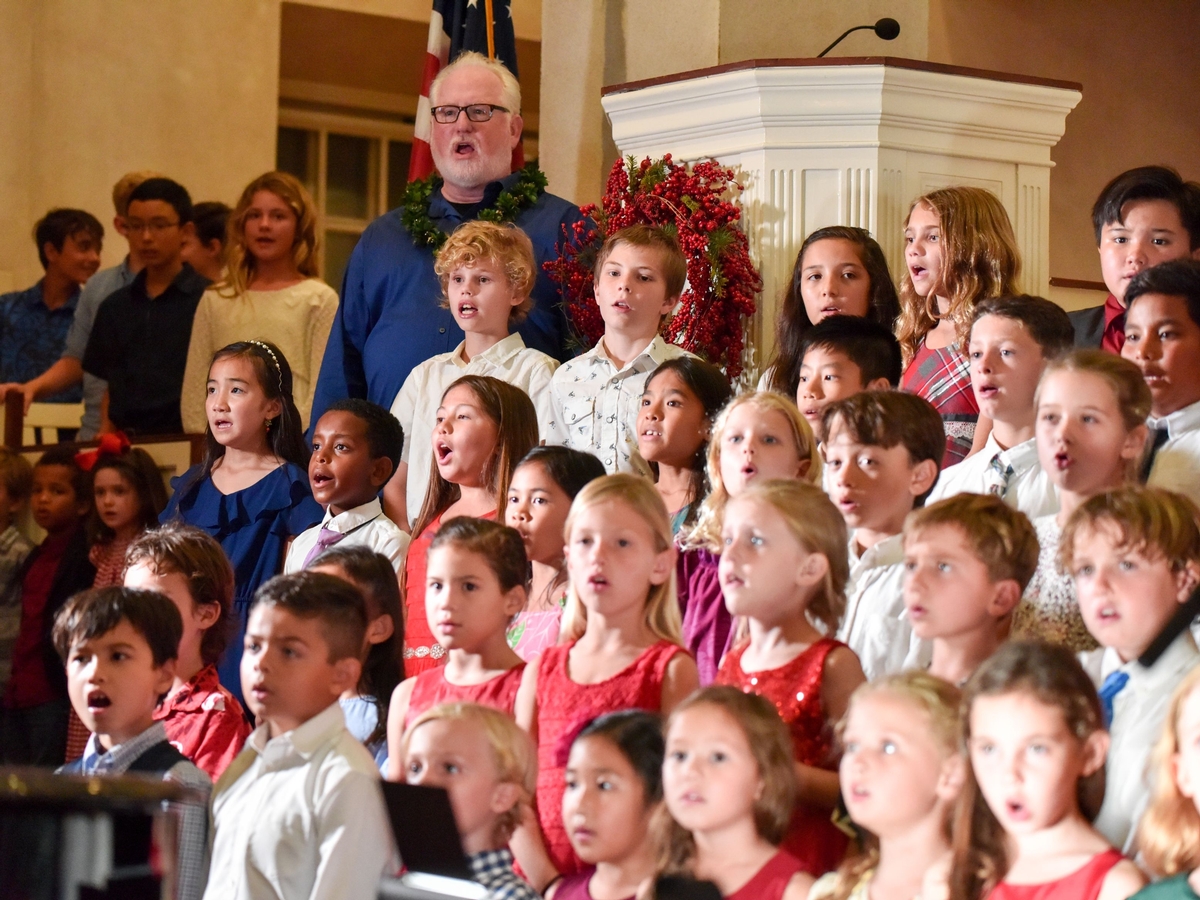
by Christie Pavey, TCS Latin Teacher
Thirty years ago in an old white house in Indianapolis, there was a little girl with curly blonde hair singing and dancing to her new favorite Christmas song, Mele Kalikimaka (as sung by Bing Crosby). She listened to that song over and over again, constantly turning back her plastic record to hear it yet one more time. She even had fun hand motions—when the palm trees sway. The words sounded really fun to her, and she liked saying them, especially as they seemed to be said in a sing-song way. As a preschooler, she didn’t understand that those fun words were a different language—in fact, the first words she would learn in a language besides English. She also didn’t yet know that later she would go on to learn more languages, even teaching one of them...and that eventually she would move to the place where Mele Kalikimaka was ‘the thing to say’.
As I close out my first semester at TCS, and spend my first Christmas in the land of rainbows, I cannot help but reflect on how I have been led to this place. My first non-Anglophone phrase was Hawaiian, and even from that young age, I was already entranced by palm trees, sand, and the warm, shining sun. Now, God has brought me to the place where palm trees sway, where the sun shines bright, and where everyone says Mele Kalikimaka!
Did you get to see our students perform at our K-12 Christmas Concert and today's Preschool Christmas Program? Watch them below!
Preschool Christmas Program
K-12 Christmas Program
Our First TCS College Fair
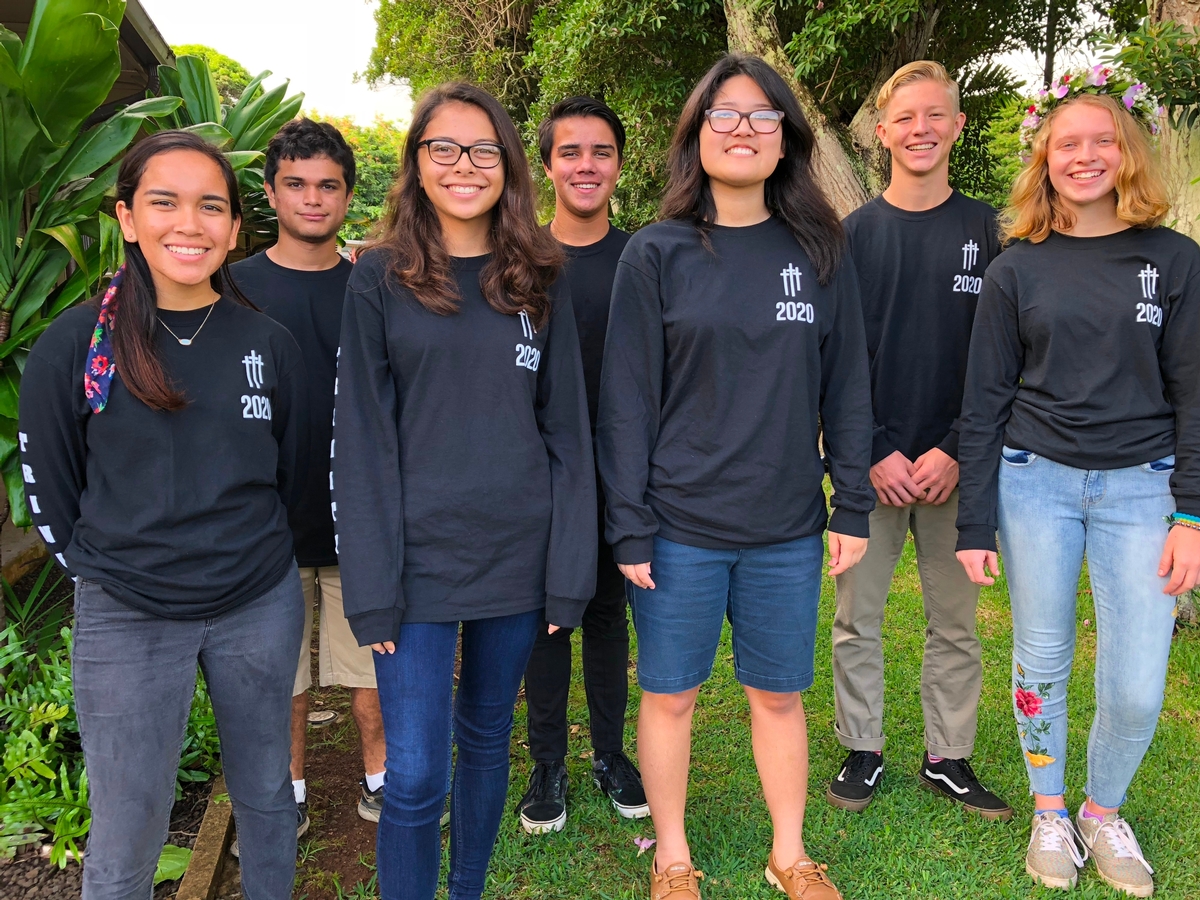
Written by Nancy Keegan
For I know the plans I have for you, declares the Lord, plans for welfare and not for evil, to give you a future and a hope. Jeremiah 29:11
Though we typically think of the college process as a junior/senior year topic, it's actually better to get our students thinking about college as early as freshman year. The information and questions a 9th grade student may have is going to be very different from a 12th grade student. A high school freshman’s main concern when thinking about college may be, “Will I like my roommate?” or, “Do they have a Division I volleyball team?” Ultimately, we want our 9th grade students to be curious about college and appreciate that they are working towards building a strong transcript that will shine on college applications.
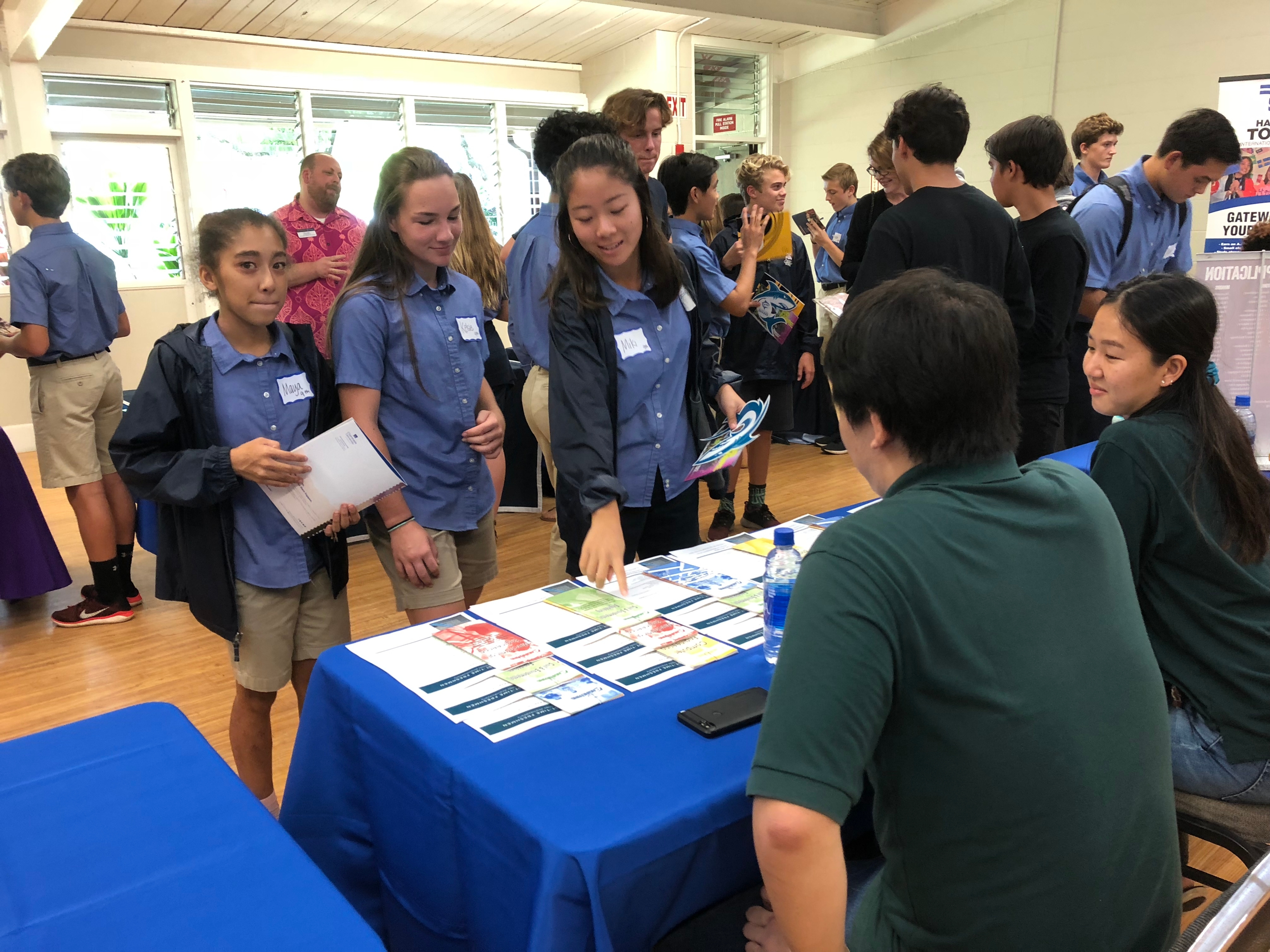
In 10th grade, the questions start to get a little more practical, like “How much does college cost?” And maybe they begin to realize that every grade on their transcript matters and may affect merit scholarships. By the time a student is a Junior they probably have a short (or long) list of schools they are interested in and the questions are ever more meaningful, like, “Can I get credit for the 10 years of Latin I took at TCS?” Or, “Will there be work study opportunities for me to help pay my college costs?” All of these questions, from the college-life questions to the important financial and academic decisions ahead, are important for our students to ask before they start an application.
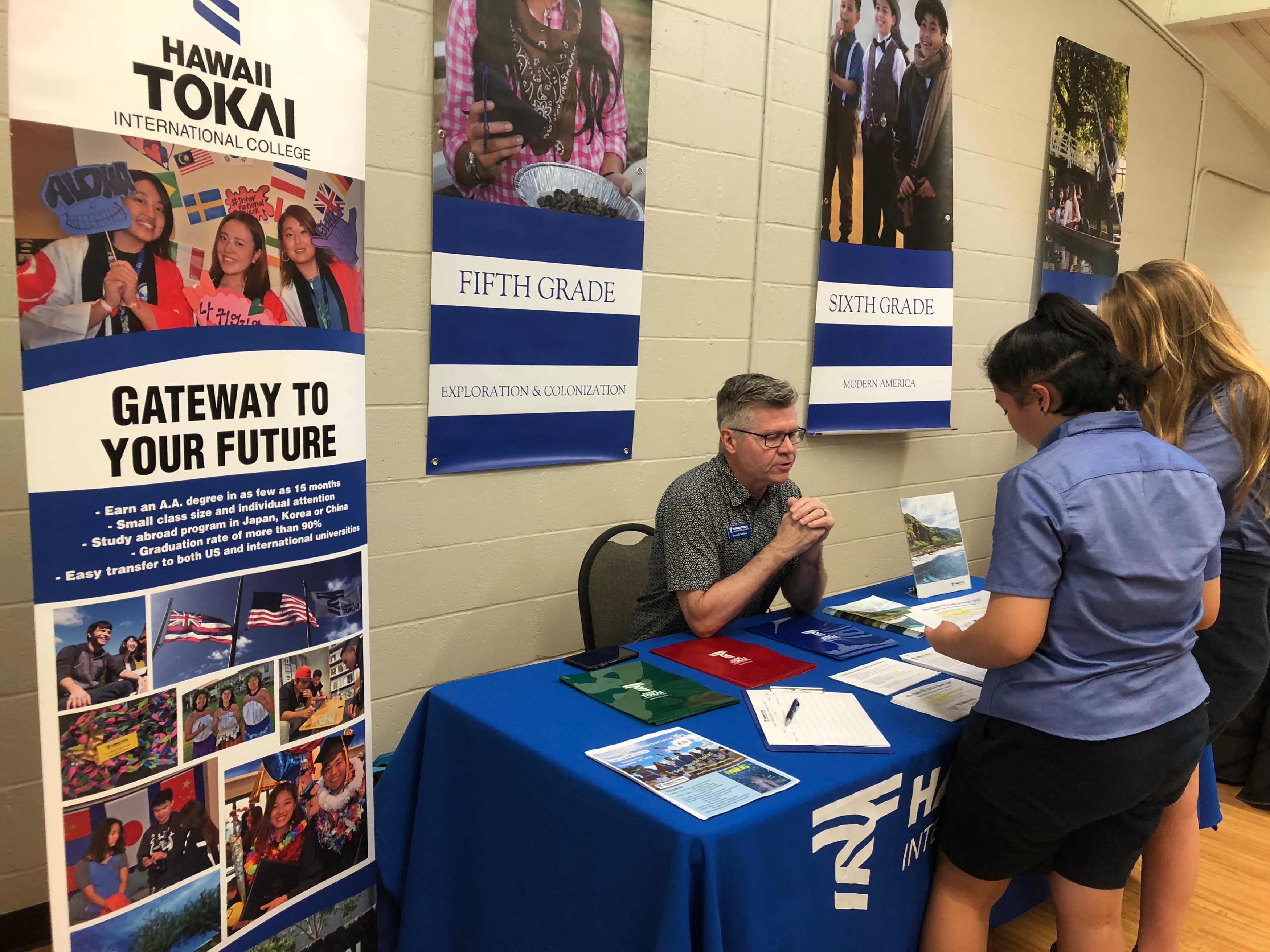
Each fall, approximately 200 colleges and universities attend the NACAC College Fair in Honolulu. We recommend that all students plan to attend this fair in their Sophomore or Junior year. While in Hawaii, many mainland schools reach out to local high schools and request to visit the Juniors and Seniors. Talking with the college representatives is a fantastic opportunity for a high school student.
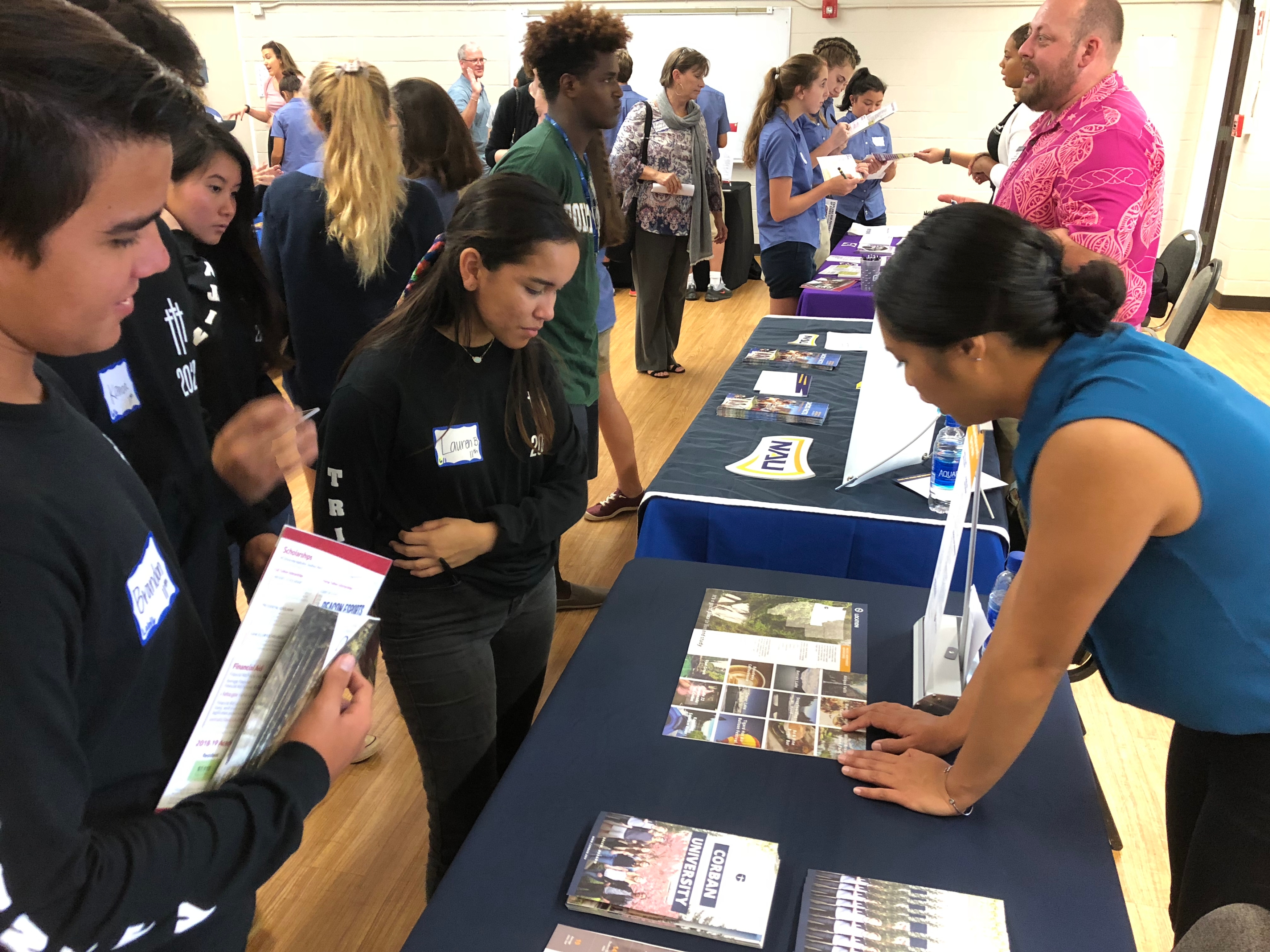
This year, we sought to bring colleges to our students by hosting our first college fair, TCS College Exploration, held last Friday afternoon, with 19 schools answering our call. The list of colleges and universities present included Grand Canyon University, Northern Arizona University, Trinity Western University*, Whitworth College, Corban University*, University of Hawaii West Oahu, George Fox University*, California Baptist University, University of Hawaii Manoa-School of Engineering, Washington State University, Chaminade University, Windward Community College*, Hawaii Tokai International College, Hawaii Pacific University*, New Saint Andrew's College*, Biola University*, Pacific Rim Christian University, and Pacific Lutheran University*. Students and parents were given an opportunity to approach the school representatives, begin asking questions, and collect college information. They were then able to meet with 6 schools in a small group format allowing for a more in-depth presentation and additional questions.
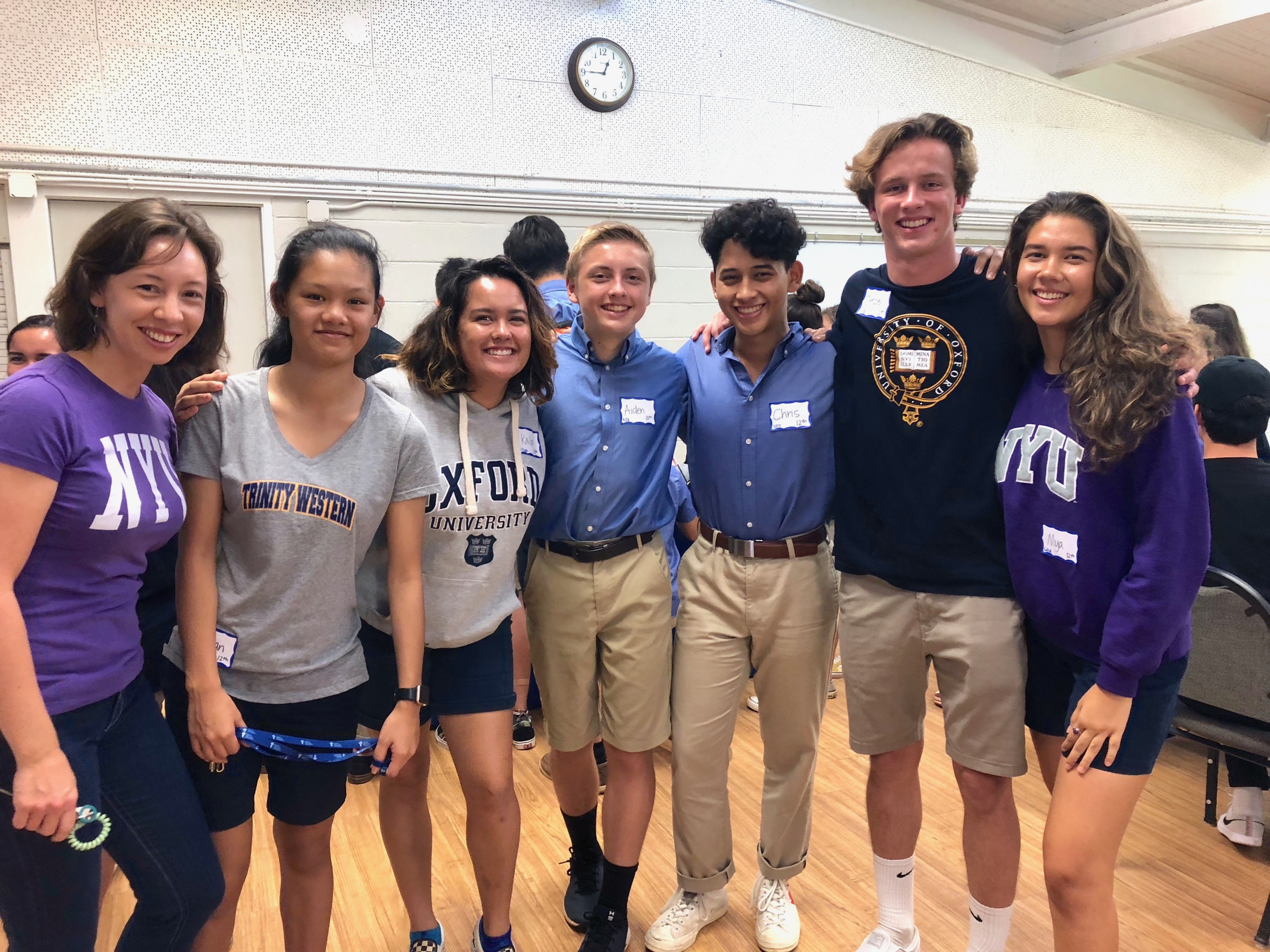
TCS is graduating a 7th senior class in May 2019. We are so excited for these students and the future God has in store for them, and we ask all our TCS ohana to pray for our students' futures. With the help of events like the TCS College Exploration, TCS is able to grow our students into the adults they are meant to be, and prepare for the years beyond TCS.
* indicates schools where TCS alumni have attended or are currently attending.
What is Classical Christian Education?
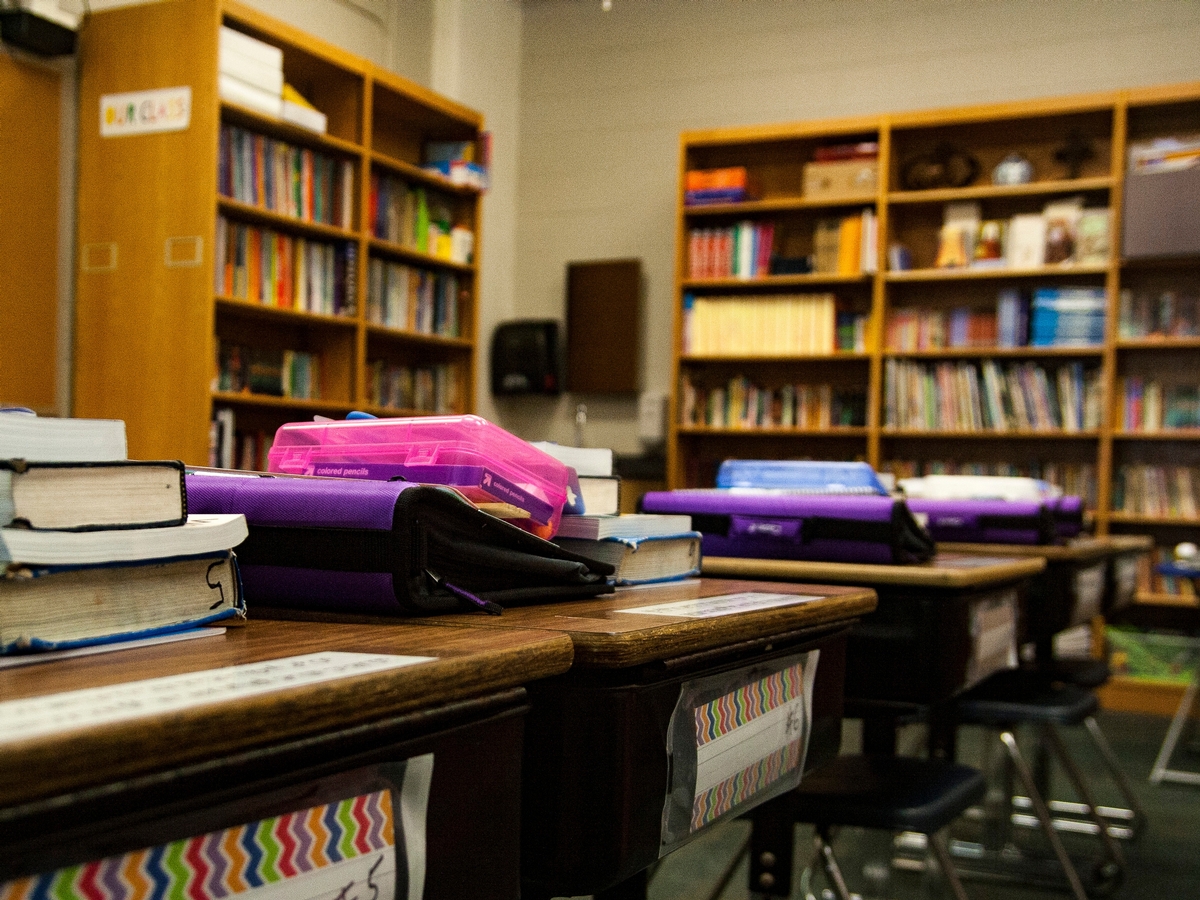
What is Classical Christian Education?
Reflections at the start of a new school year
by Eric Fugitt
There is a crisp feeling in the air on a cool August morning as the doors to Trinity Christian School open wide and a new year begins to unfold. There is a flood of enthusiasm amongst the faculty, parents, and students as we eagerly anticipate the wonders we will uncover over the next 9 months. Uniforms are freshly laundered and neatly worn, and an eager smile shines on every face. I see waving parents—resting in the confidence of their choice of school for their children—dropping them off at the curb or walking their little ones to their fresh, new classrooms. The atmosphere is electrified with wonder, awakened from its summer drowsiness, igniting anticipation in having that wonder fulfilled.
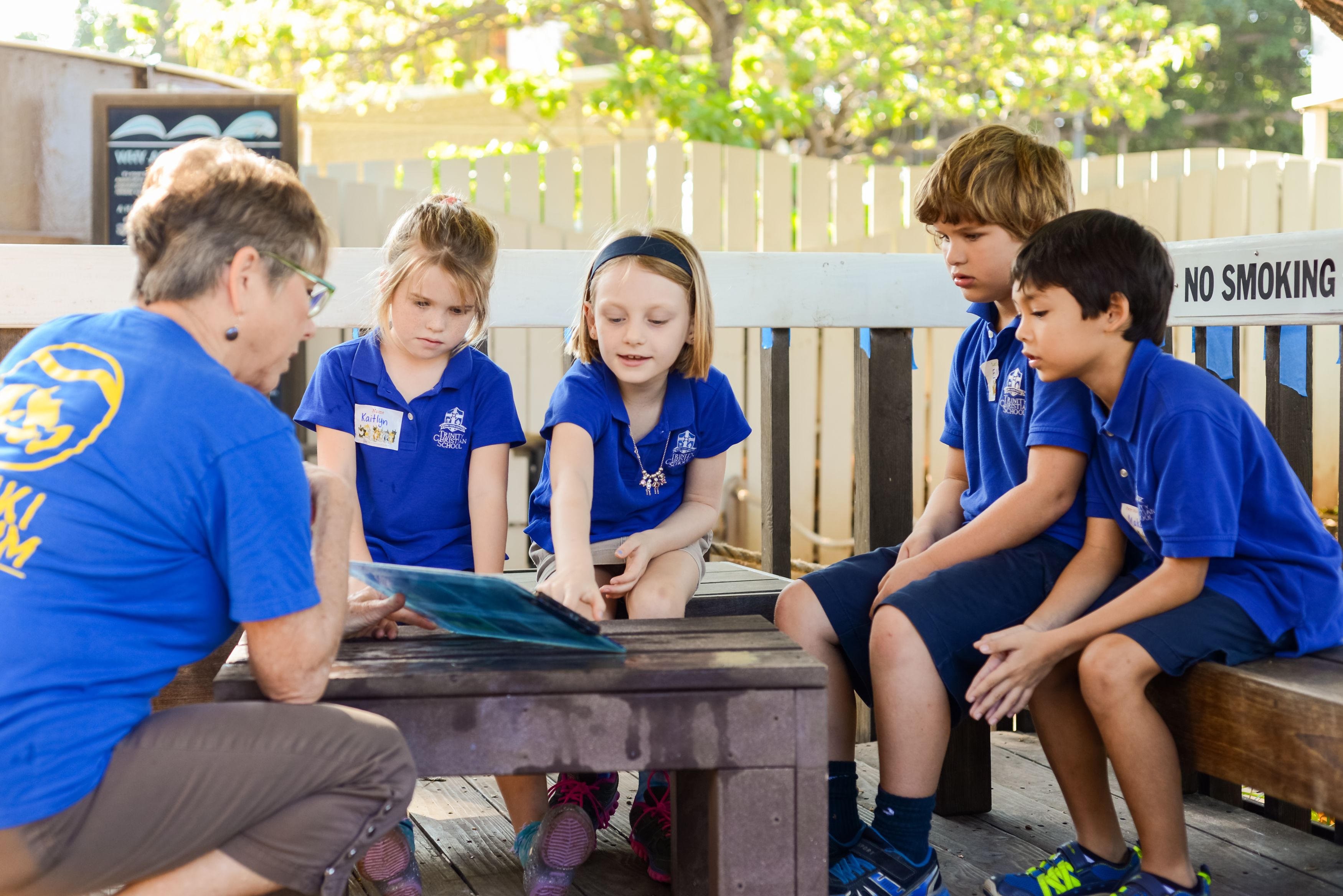 Throughout the next few months, the halls of the grammar school in this classical Christian environment will resound with the echoes of chants, sound-offs, and songs being ardently practiced each day by energetic and enthusiastic children taking satisfaction in their ability to memorize astonishing quantities of material with relative ease. These children are being taught according to their God-given gifts. We are teaching “with the grain” of each child, which promotes wonder and makes for a happy and contented student. Gone are the days of goading the child to prematurely reach far beyond his grasp to higher-level thinking which he finds unpleasant—making little sense to his developing mind. This child is the most content when life consists of black and white, right and wrong, and facts and rules. He takes delight in his ability to recall and recite volumes of information from their latest science or bible lesson, sing funny grammar jingles, or chant about his history time-period.
Throughout the next few months, the halls of the grammar school in this classical Christian environment will resound with the echoes of chants, sound-offs, and songs being ardently practiced each day by energetic and enthusiastic children taking satisfaction in their ability to memorize astonishing quantities of material with relative ease. These children are being taught according to their God-given gifts. We are teaching “with the grain” of each child, which promotes wonder and makes for a happy and contented student. Gone are the days of goading the child to prematurely reach far beyond his grasp to higher-level thinking which he finds unpleasant—making little sense to his developing mind. This child is the most content when life consists of black and white, right and wrong, and facts and rules. He takes delight in his ability to recall and recite volumes of information from their latest science or bible lesson, sing funny grammar jingles, or chant about his history time-period.
In the grammar school, we are about the business of teaching the facts and rules (the grammar) of each subject in God’s creation to foster a sense of wonder already present in the child’s mind. There is a telos, or purpose, in teaching this way. We are preparing him for a life with Christ as well as for the next level of his classical education—the logic stage—where his “wonder-grain” starts to take on a new pattern.
As he moves out of the grammar stage, his mind is bursting with knowledge that the secondary teachers begin to rework. His new sense of wonder takes delight in analyzing the world around him while looking for flaws. Everything is prey to his analysis. No lapses in logic are insignificant. He scrutinizes everything so as to argue everything.
Knowing their students possess in full measure these characteristics, the teachers begin to train him to  discuss and debate moral issues in a Christ-like manner. Teachers at this level challenge their students’ assumptions. This requires a tough skin, because the teacher is now the target of his students. We educate him in the fine art of argumentation with an intentional concentration on his demeanor (ethos), logic (logos), and persuasiveness (pathos) so that he may bring glory to God and be firmly grounded when interacting in the adult world. We encourage and help facilitate a deeper relationship with Christ so that He may mold the child into His image—creating within him a deeper beauty.
discuss and debate moral issues in a Christ-like manner. Teachers at this level challenge their students’ assumptions. This requires a tough skin, because the teacher is now the target of his students. We educate him in the fine art of argumentation with an intentional concentration on his demeanor (ethos), logic (logos), and persuasiveness (pathos) so that he may bring glory to God and be firmly grounded when interacting in the adult world. We encourage and help facilitate a deeper relationship with Christ so that He may mold the child into His image—creating within him a deeper beauty.
Finally, as he progresses through to the Rhetoric stage, he now has his facts and rules of the world around him; he has dissected the significance of the Logos (Christ—the glory of God); he has logically debated the effects of the Creation, Fall and Redemption of man; and he now learns to articulate his viewpoint reasonably and persuasively for the glory of God. It is in the Rhetoric stage that the “wonder-grain” bends once again as the student now desires to articulate the wisdom God has given him. This articulation is performed both orally and in written form. Deep, meaningful discussions permeate the Rhetoric stage. Along with core academic classes, students take formal rhetoric to refine the craft of discussion and persuasion. A Christ-like presence, an ability to reason in a reflective, thoughtful manner, and an attractive persuasiveness in speaking the Truth are the aims of a classical Christian education.
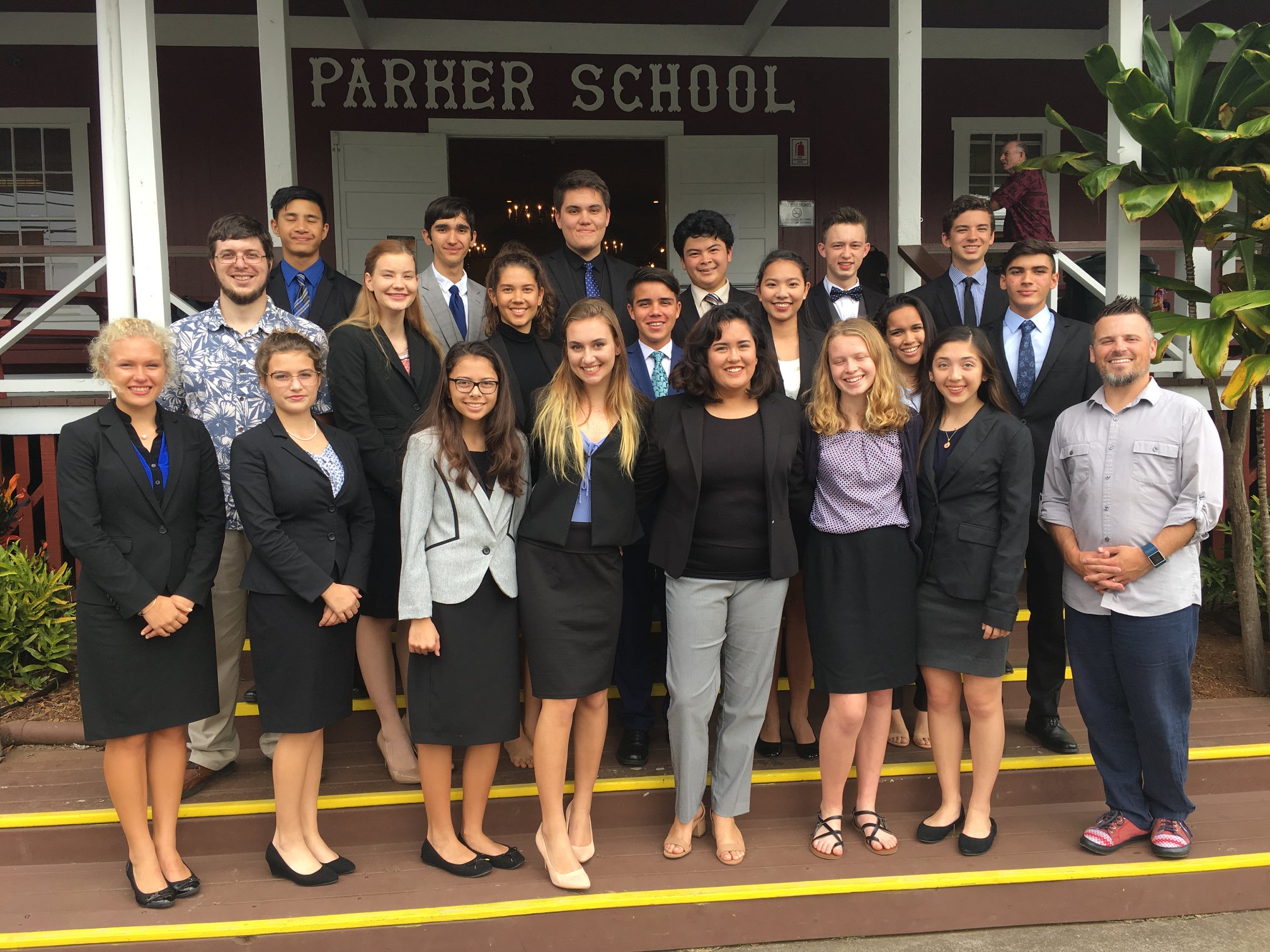 The ultimate goal of a classical Christian education is heart and character formation for the glory of God. True education can only be accomplished within the context of a strong biblical worldview. We establish our students in the truth of the Lordship of Jesus Christ over all knowledge, understanding, and wisdom. We bask in the truth, beauty, and goodness of Jesus Christ found in His Word and in His creation. This is what we do. This is our spiritual act of worship each day. Soli Deo Gloria.
The ultimate goal of a classical Christian education is heart and character formation for the glory of God. True education can only be accomplished within the context of a strong biblical worldview. We establish our students in the truth of the Lordship of Jesus Christ over all knowledge, understanding, and wisdom. We bask in the truth, beauty, and goodness of Jesus Christ found in His Word and in His creation. This is what we do. This is our spiritual act of worship each day. Soli Deo Gloria.
Using Discernment: Reflections from Irene Kano
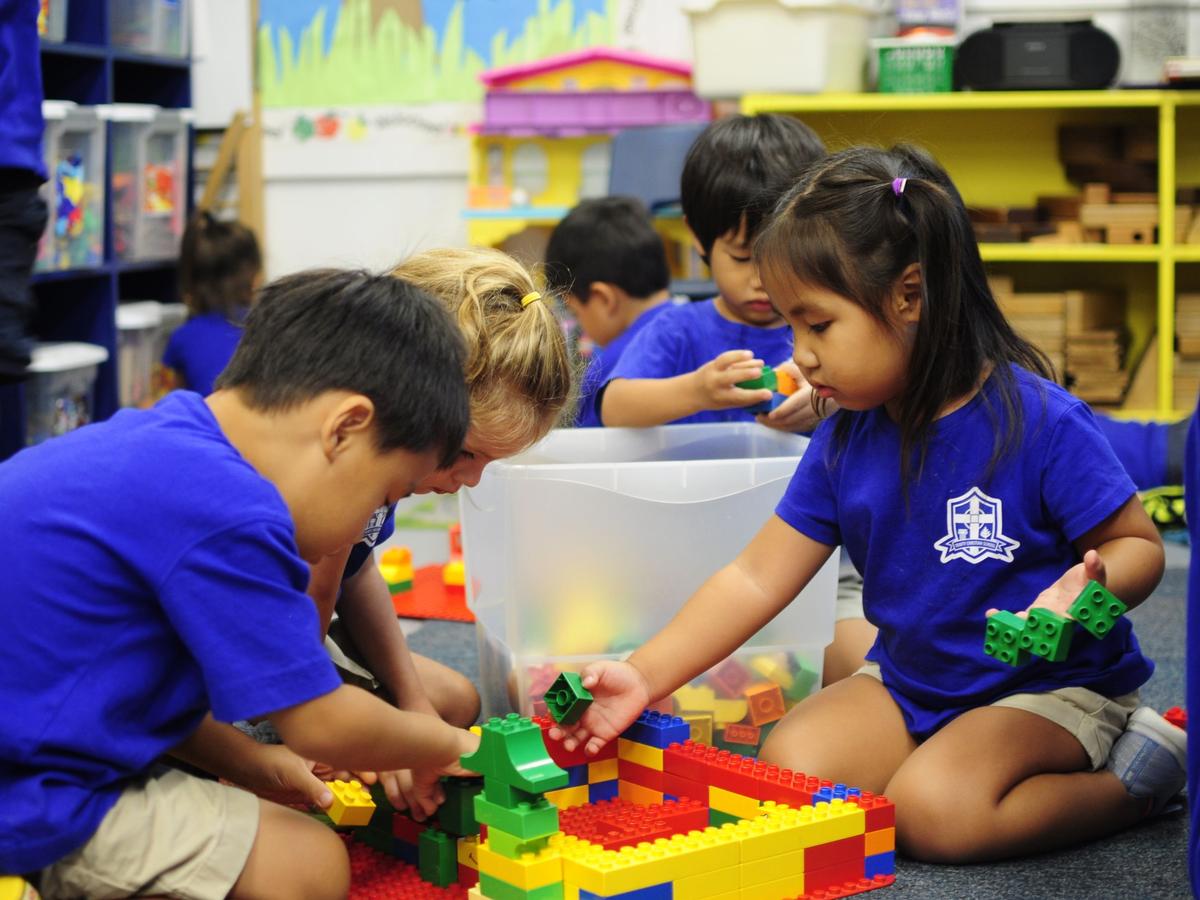
Using Discernment: Reflections from Irene Kano
Written by Irene Kano, Mauka Campus Principal
A few weeks ago, I found myself face to face with a child whose face was dripping with sweat and bright red with anger. He had been “sent to the Principal’s office” for a recess altercation where he had punched his classmate. Violence is entirely unacceptable, and as the Principal, it is part of my job to enforce school rules to keep all students safe. But as a parent and teacher who is tremendously thankful for the grace and patience of my Heavenly Father, I have learned the importance of taking the time to ask God for discernment and trust His insight to guide me so that I discipline children the way He teaches me.
Over the years I’ve learned that when supervising kids, we often only see the adverse reaction, but not necessarily the cause, of an altercation. The boy who was hit initially cried victim and the red-faced boy has been in my office a few times before. But when we got to the bottom of it, the “victim” was the one who had initiated the fight. I then had the opportunity to talk with both boys about how each of them was wrong in the situation, and explain how they shared the responsibility in the sinful act. It is easy for us to jump to conclusions and label our children or colleagues as “difficult” or “problems.” But when we do so, we limit our fellow image-bearers to our skewed perceptions of them and don’t leave room for the Holy Spirit to open our eyes and hearts. Discernment, grace, and the patience to understand are especially crucial when disciplining our kids and confronting our brothers and sisters when we’ve been wronged. I’m still learning to do this, and when I don’t get it right, I’m thankful for the reminder that God sees us entirely. In our best and in our worst, He remains loving and just.
Why Speech and Debate Matters: Part 3
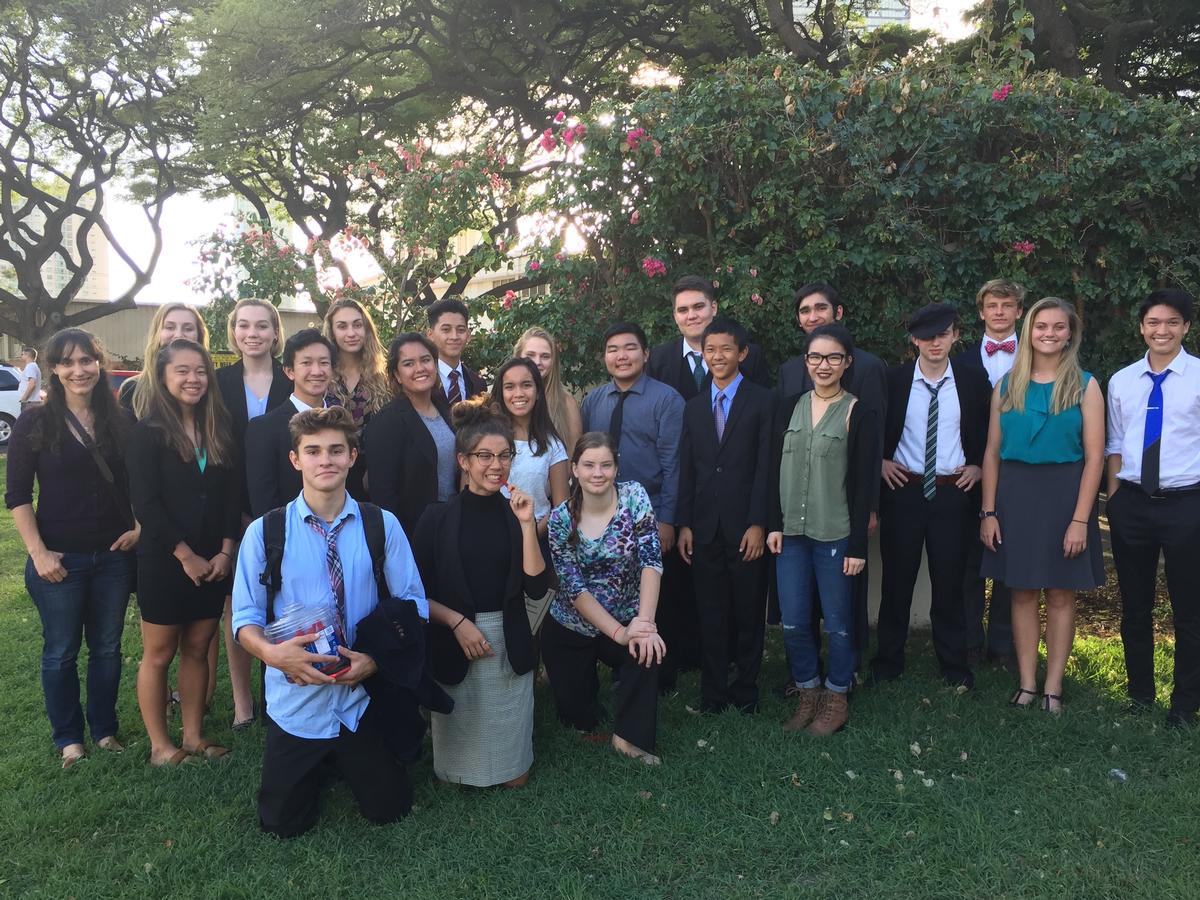
Why Speech and Debate Matters, Part 3
By Joshua Hu, Class of 2017
Six hundred college students pack into a large auditorium. Talking ensues but halts when a spokesperson yells an announcement through a microphone. Suddenly two hundred and fifty team names shuffle down a projector screen in rows of four with room names and team positions. Everyone frantically jots down their necessary info, then takes out their phones to take a picture of the new debate motion which appears on the screen. This round is focused on international relations. After fifteen minutes of talking, scrambling to find your room, and formulating arguments using only your mind, perhaps a paper dictionary, and an almanac, the debates begin. Judges render decisions, then the whole deal repeats with new topics every round.
This will be the scene next month as public and private colleges and universities across America, most notably Harvard, Princeton, and Yale, come together to compete in the US Universities Debating Championship (USUDC) in Stanford, CA. Debates will be held in the “British Parliamentary” format, modeled after the British House of Commons. In this format used by universities around the world, four teams of two (two government and two opposition) debate on a unique topic each round. I am extremely fortunate to be able to represent the University of Hawaii nationally as well as internationally as I go through college.
“Why debate?” is a question many parents and students may ask themselves as they see that debate is a required part of the Trinity curriculum. And it’s a question I consider before, during, and after each tournament I compete in. After four years of debate in high school, why do I coach high schoolers across America? Why do I continue debating in college? I debate because I enjoy the skills I gain regardless of win or loss, the friendships I am able to make with others, opportunities to travel, and the passion I have for discussing these issues.
Why Debate?
The most obvious benefit one gains from participating in debate is improvement in one’s confidence and abilities to speak in front of an audience. Not only does this prepare one for the TCS senior thesis and success in life in general, but as Christians, it better equips students to confidently face others and “give an answer for the hope that is within us” (1 Peter 3:16). But debate is much more than that, and matters because it teaches decision-making, empathy, and fosters the pursuit of truth—which students today dearly need—in a way that no other activity can.
Debate teaches decision-making in numerous ways. In an age where we are bombarded more than ever before with contrasting information and opinions, debate requires that students examine the reliability of sources that arguments are built on. When two PhDs give completely conflicting explanations, students cannot say that “both are 100% right,” but are forced to look at the reasoning behind the explanations, and decide which (if either) argument is true, or at least more true. Debate forces students to slow down in their lives and think about how people, societies, and governments make decisions, and what the most important goals or interests of those high-stakes decisions are. Not only do students become more aware of their own decisions, but of others’ decisions that influence how we live today.
At the same time that debate teaches logical thinking, it teaches empathy as well. People are emotional creatures, and the way a message is expressed is often just as important as the message itself. How can I communicate and persuade a mom, a grandparent, a professor, a college student? How do they think and what do they value? Who is affected by this debate topic, and how can I make these situations real and pertinent to my audience? How can I not just speak about a conflict, but speak on behalf of a group facing harm or needing aid? Successful communicators understand their audiences’ biases, but don’t compromise. They start on common ground and move forward with their opinions. This is only possible when we have empathy and can place ourselves in the shoes of another. Such empathy requires one to step out of a self-centered mindset, and value others above oneself, something Christ called us all to do in love.
At the same time that debate teaches logical thinking, it teaches empathy as well. People are emotional creatures, and the way a message is expressed is often just as important as the message itself.
How can I communicate and persuade a mom, a grandparent, a professor, a college student?
How do they think and what do they value?
Most fundamentally, debate occurs because it fosters the pursuit of Truth. Debate has the power to allow one to bring or take one from the Truth, and it is the reason why this tool is so precious, yet dangerous. Too often, especially on college campuses, opinions are censored because they are seen as “hateful” or “improper.” The spirit of debate condemns this perspective and says that every person’s perspective is worthy of consideration, no matter how vile that speech may be. If one believes in falsehoods and is convinced otherwise through debate, as the philosopher John Stuart Mill noted, that person has the benefit of exchanging error for Truth. But if someone spews vile falsehoods, debate and discourse can occur to snuff out those beliefs and strengthen the Truth.
The world will never get everything right. The Apostle Paul wrote in his letter to the Romans that man “exchanged the truth about God for a lie, and worshiped and served created things rather than the Creator—who is forever praised” (Rom. 1:25). Discourse and debate may bring others to the truth in some cases, but in many others, may lead one down the wrong direction, blinded by lies and sin. In a fallen world, speech allows us as Christians to bring attention to the needs of others and to guide others toward the Good, True, and Beautiful. If we fail to express the importance of Truth, in word and in deed, how can we witness to the world, how will things change? And if we fail to do so in love, why will others heed our call?
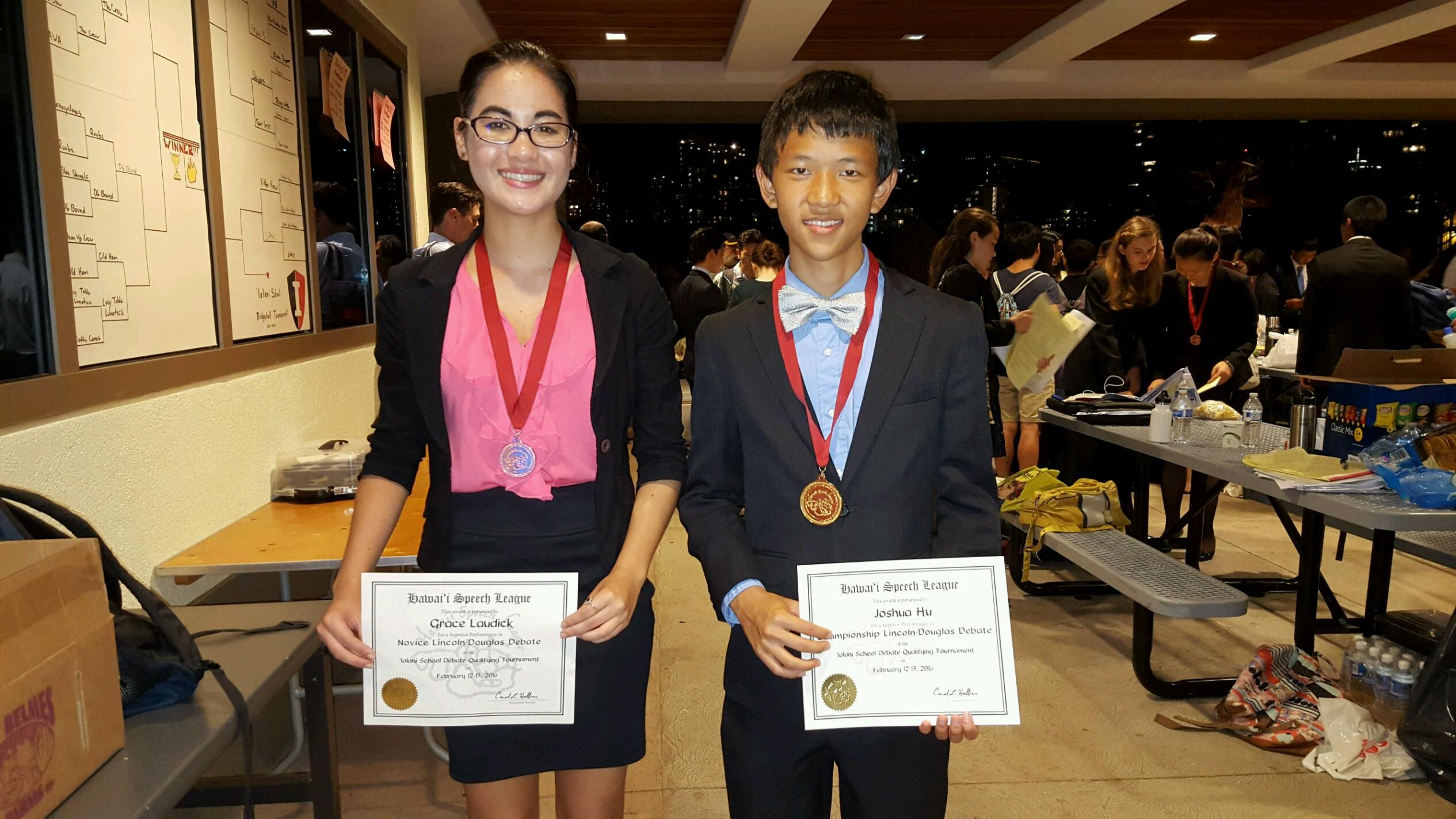 I initially joined Speech and Debate because my good friend Bobby Treakle (’14) was captain at the time, and because I had heard that Dr. Laurie Wilson (then my Latin teacher) was a great coach, and it sounded like a fun team to join. I absolutely did not like public speaking when I joined but as time went on my fears eased and I gained a love for discussing issues and debating—to this day, I enjoy the opportunities to speak and share my beliefs with others.
I initially joined Speech and Debate because my good friend Bobby Treakle (’14) was captain at the time, and because I had heard that Dr. Laurie Wilson (then my Latin teacher) was a great coach, and it sounded like a fun team to join. I absolutely did not like public speaking when I joined but as time went on my fears eased and I gained a love for discussing issues and debating—to this day, I enjoy the opportunities to speak and share my beliefs with others.
As I look back on my time in high school, Speech and Debate has been one of the most influential activities I have been a part of—it’s given me a job, an ability to travel and meet others, and it’s shaped my interest in the world and what I’d like to pursue for a career.
Not everyone will enjoy debate, but like any class, there’s always something for everyone to learn, for everyone to take away. If you’re reading this article, students, go in with an open mind, and learn what you can. The world needs more people who are confident enough to think well, speak Truth, and proclaim the Gospel.
Two hundred and fifty teams will compete at Stanford USUDC 2018, but only one will walk away as champion. Regardless of the result I will continue to debate because I know its value is not in mere victory. It’s in being equipped to speak the Truth with boldness and confidence in love.
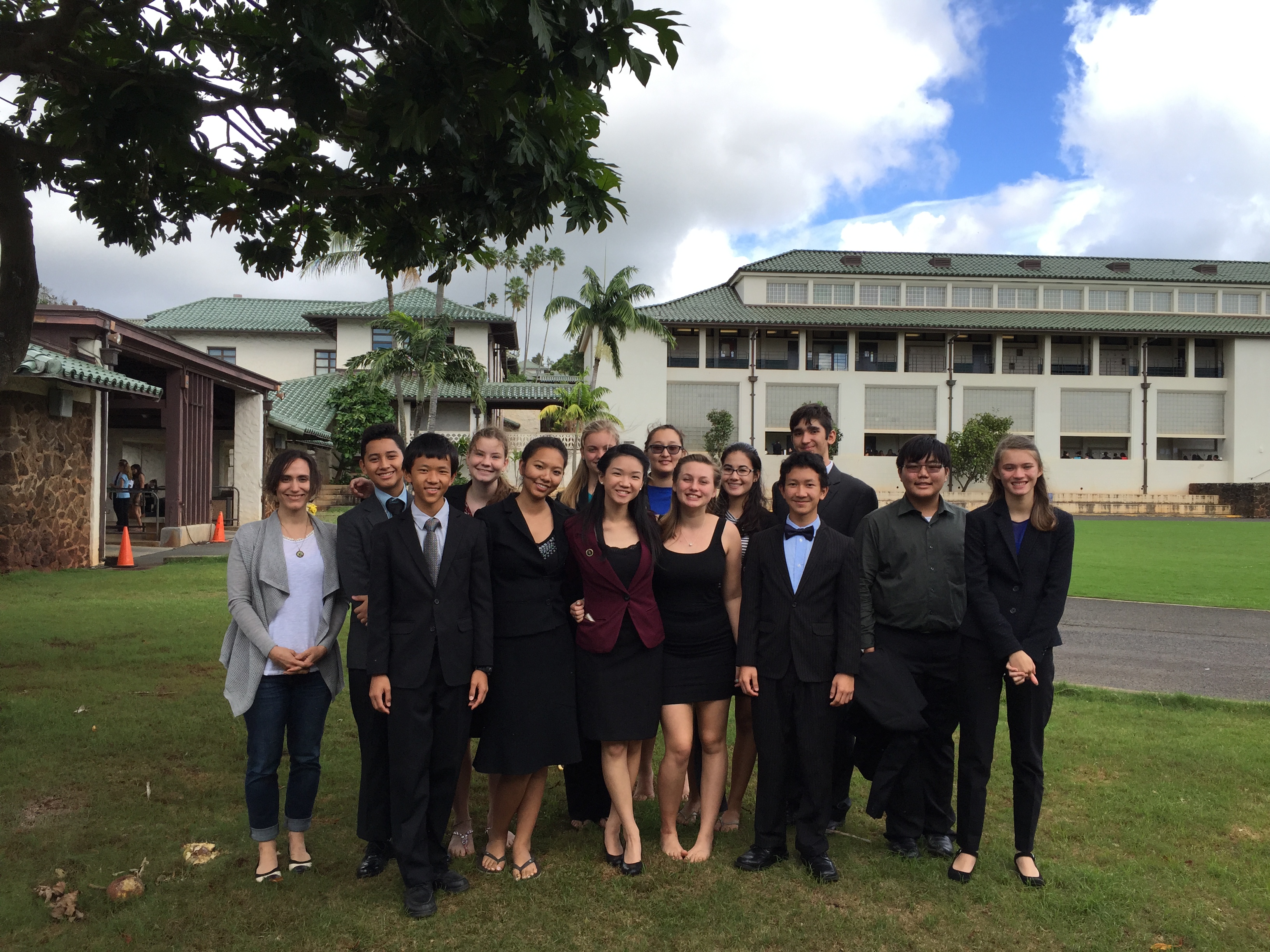
Joshua Hu is a Class of 2017 alumnus who attended Trinity from preschool to 5th grade, and then again from 8th to 12th grade. During his time at Trinity, Josh competed in Policy and Lincoln-Douglas debate formats, winning the Hawaii Speech League State Tournament three times, earning bids to compete at the 2015 National Tournament in Dallas, Texas with Hannah Goda (’15) and the 2017 National Tournament in Birmingham, Alabama. Now a freshman at the University of Hawaii at Mānoa, Josh is majoring in Business and Economics, with plans to pursue a law degree after undergraduate studies.
Why Speech and Debate Matters: Part 2
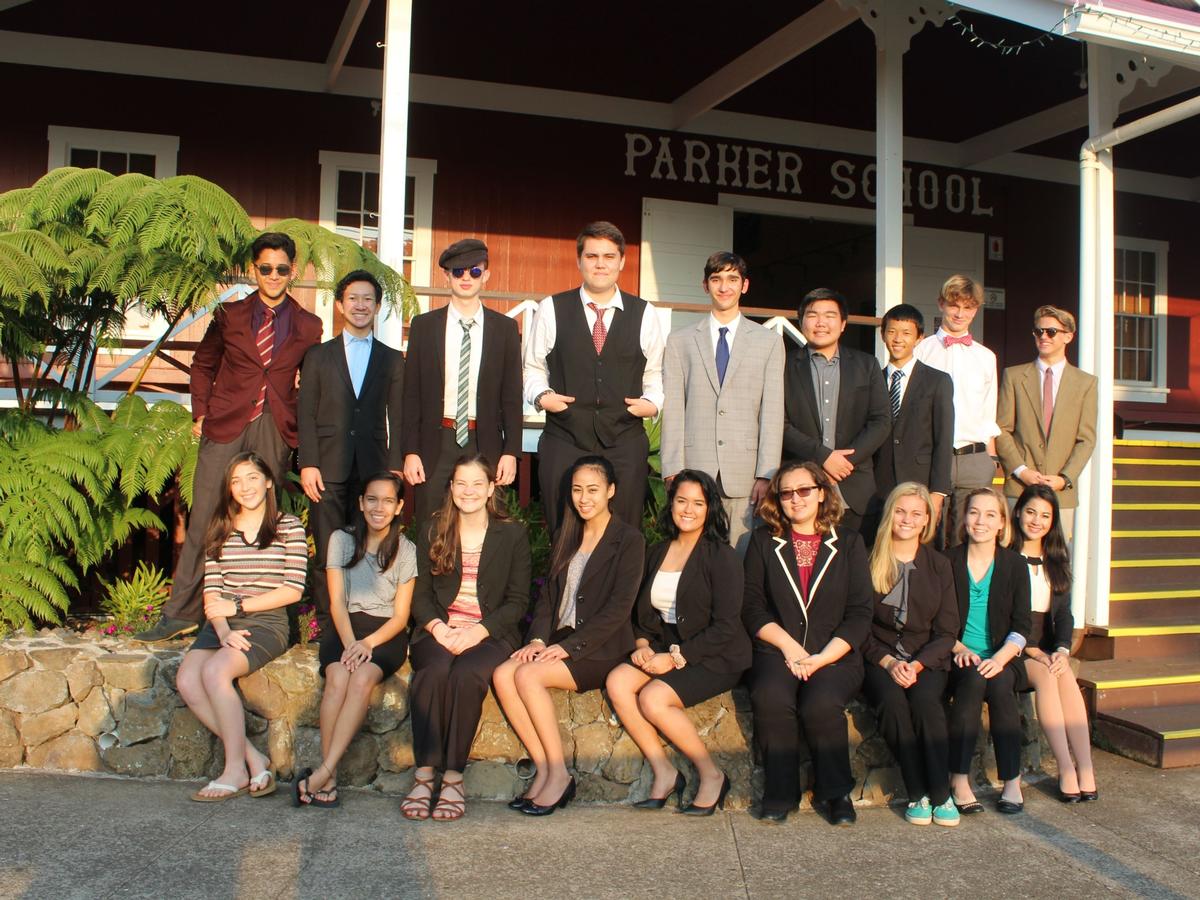
Why Speech and Debate Matters: Part 2
By Danielle Schum, '17
As a middle schooler at Trinity, I knew that I was eventually going to have to take Trinity's Speech and Debate elective and I didn't really know what it meant. Also, the only view I had received of the class was not particularly exciting view because it wasn't people's favorite class. Towards the end of my eighth-grade year, our former speech and debate coach asked students to volunteer to time keep for the rounds of the state tournament. I watched some of our alumni compete and it inspired me to want to join. I stuck with the Speech and Debate team for four years because I loved the platform of being able to express my ideas in rational ways and look at important issues from all sides.
My first year in Debate I participated in Junior Varsity Policy Debate and it was a quite an adventure. Our topic was whether or not the US Federal Government should increase economic and/or diplomatic engagement with Cuba, Mexico, or Venezuela. Competitors in this category must write a case to provide a solution to the resolution including an issue that needs to be solved within the topic, a well-researched achievable plan, and advantages to their particular plan. In addition, they must also be well-researched to refute other teams' plans and show logic to prove and connect their evidence. For the next three years I advanced to Varsity Policy and gained a very strong work ethic and persistent will. In my junior year at Trinity, I finally dipped into the speech side with Humorous Interpretation (HI) and was instantly connected. HI was my favorite category and I competed in it for two years. I also tried Original Oratory and Congressional Debate and wish that I had more time to explore those categories.
"I stuck with the Speech and Debate team for four years because I loved the platform of being able to express my ideas in rational ways and look at important issues from all sides."
I qualified to the Hawaii State Speech and Debate Tournament once in Junior Varsity Policy and once in Humorous Interpretation. Every year that I participated in debate, I attended the Big Island Tournament at Parker School and that tournament is so helpful for team bonding. With a closer team, students compete better.
‘Inside Out’, Humorous Interpretation Speech, Danielle Schum from WE Media Services on Vimeo.
I always knew I wanted to stick with Speech and Debate both out of love for it and because I discovered scholarships for it. I've been competing on the Concordia Irvine Speech Team for a year and it has been one of the best growing experiences I have had in college. My teammates are all such amazing speakers and inspire me to do better in addition to helping me get better. At the collegiate level there are way more tournaments than on the high school circuit and each one is an opportunity to qualify to the National Tournament. In short, the stakes are always high and the competition is fierce. I took freshman year to be a learning year, but next year, I'm prepared to bring the fire from day one.
"I took freshman year to be a learning year, but next year,
I'm prepared to bring the fire from day one."
So far, I have competed in two categories that are both similar to Original Oratory. In high school, Original Oratory is a research speech that students write themselves on topic of their choice. In college there are different variations of that. One is called an Informative Platform in which the speaker writes an original research speech to inform the audience about just about anything. The second is After-Dinner-Speaking (ADS) which is basically an Oratory filled with jokes. In April I will be attending the American Forensics Association National Tournament with my Informative Platform speech and the honor of attending is huge for me. The fact that I have this opportunity as a freshman fills me with gratitude. Beyond participating in college-level speech and debate, having the confidence to speak has exponentially lightened a lot of the stress that can come with college classes because of the skill sets I gained while competing, from researching to presentation.
It's also one of those activities that empowers you in life even after you've finished competing. If I choose to be an actor or director in theatre, I will be well-spoken and be able to do character research and analysis easily. If I choose to be a teacher, I will surely encourage my students to get more comfortable with speaking if I don't end up as a speech and debate team coach. Not only that, but I'll be able to communicate well with my students and accurately explain the various sides to issues. More broadly, as a citizen, I think that speech and debate can greatly impact people to be well rounded members of their community. They'll be able to see both sides to the arguments and communicate well in society. I would strongly advocate incorporating speech and debate programs into high schools for those reasons because I have seen those benefits play out in my life and my teammates.
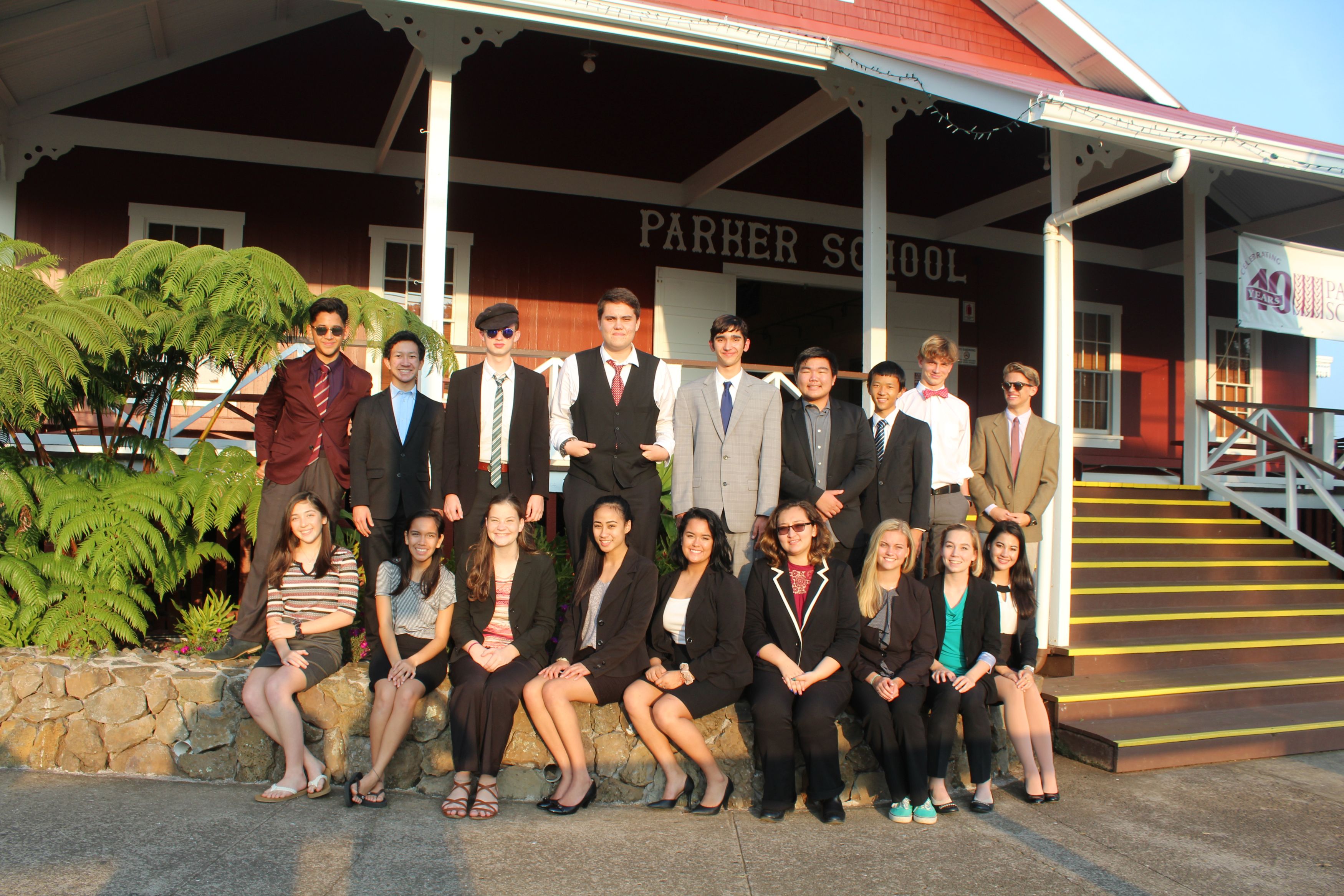
Danielle is a Class of 2017 alumna who started at Trinity in 2010. Now she is finishing her freshman year at Concordia University Irvine. Danielle is double majoring in Theatre with an acting/directing emphasis and History while also getting her teaching credential. In the future she hopes to be a high school history teacher, find a job acting or directing, or a combo of it all.
Why Speech and Debate Matters: Part 1
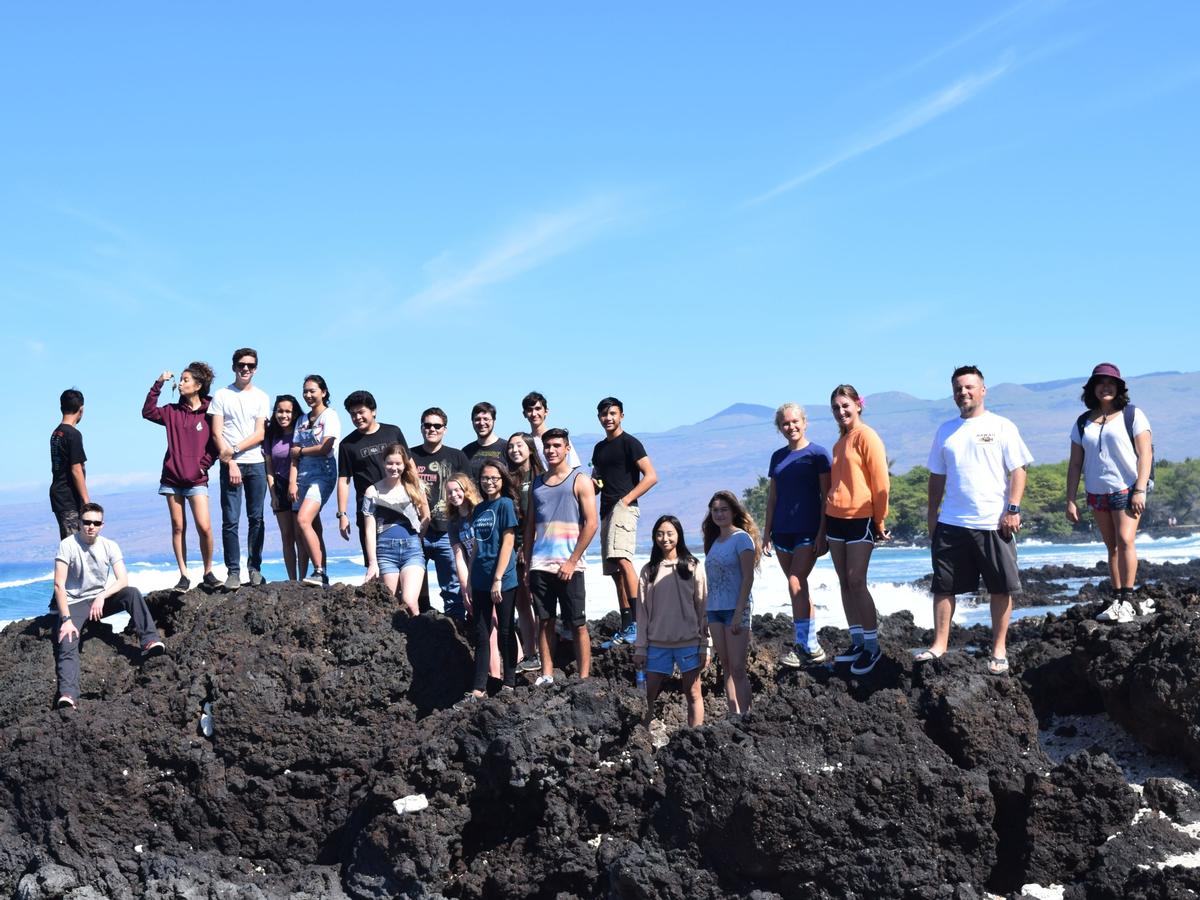
Why Speech and Debate Matters: Part 1
Written by Kai Glorioso, Class of 2018
It’s hard to articulate just how important public speaking is. As a senior, I can tell you that just about every presentation, every essay, and my upcoming thesis were all made much easier by using the skills I have learned in speech and debate. In the rhetoric stage (9-12th grade) of classical education, nearly every subject is in some way related to either critical thinking or eloquent speaking, both of which are used in Speech and Debate. It has been a huge blessing in my life, and I know that the TCS team has also been a huge blessing to many other students in the same way that it has been a blessing to me.
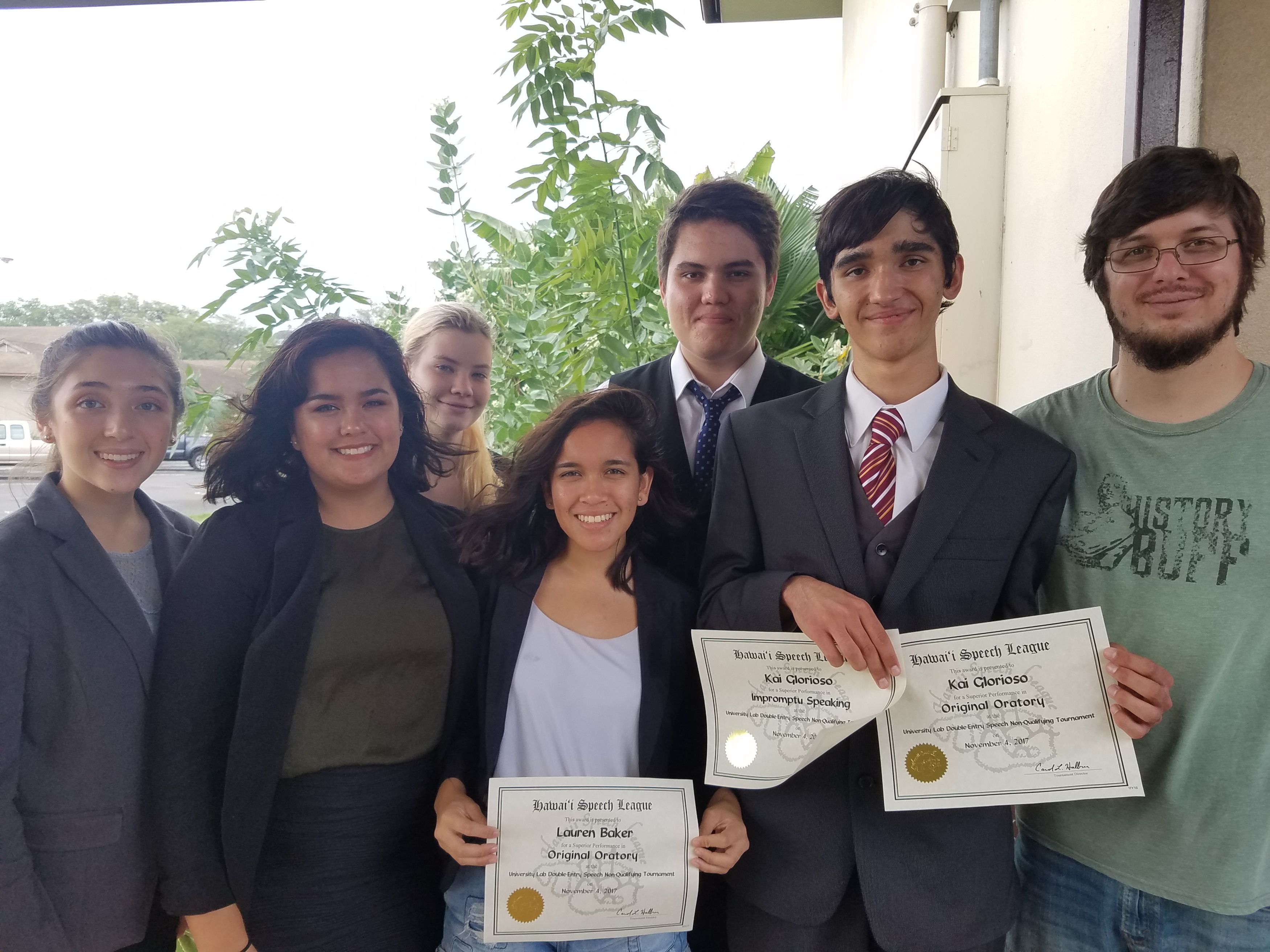
The Bible is very vocal about the use of speech among the prophets, apostles, and Christ Himself. As Christians, we are called to spread God’s Word, and by learning to speak concisely and thoughtfully, we can better communicate our message to the world around us. However, the ability to speak in public has become increasingly rare among high school students. Trinity, however, deviates from the status quo, not only offering, but requiring that students take at least one year of debate. This ensures that every student has exposure to public speaking and acquires strong research and logic skills.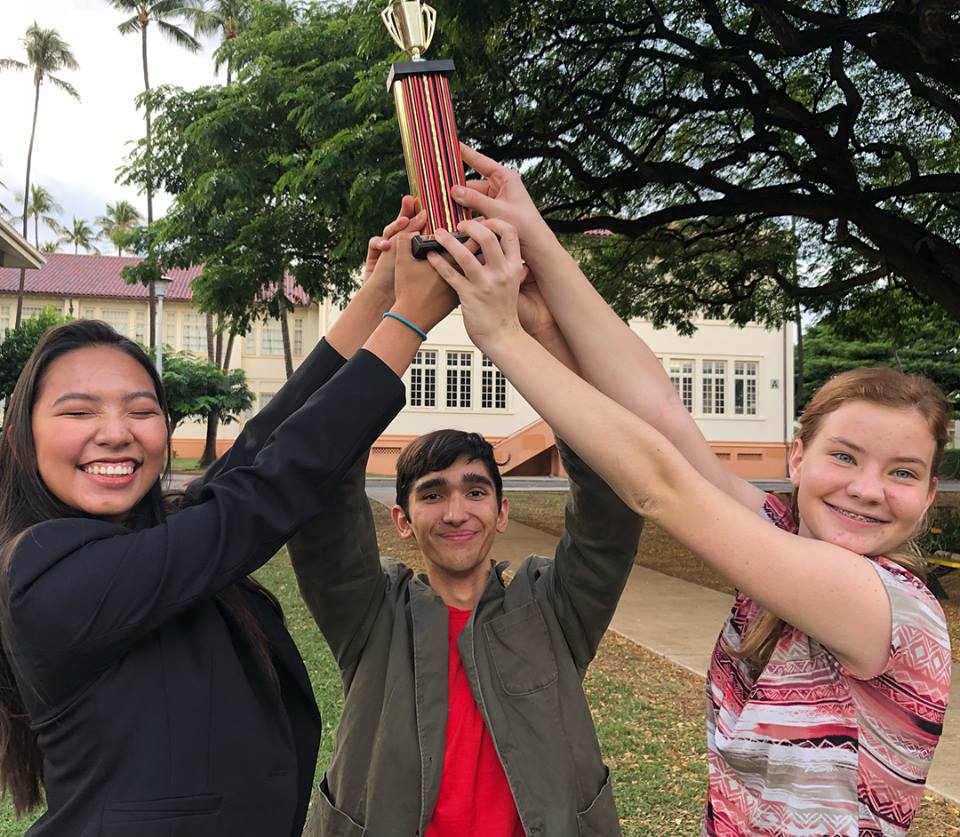
I joined the debate class as a freshman. During that first year, I didn’t know much about what I was doing, but I knew I wanted to be there. The very concept of debate intrigued me, and I felt something about debate beckoning me to join the class. Plus, my favorite teacher was the coach, so it was a no-brainer at that point. But it wasn’t until after joining that I fully realized just how important speech and debate is. For the first two years, I was not very professional or eloquent, but eventually I gained enough experience to be a capable and eloquent speaker.
After 4 years on the team, I have seen nearly every student have one thing in common before their first tournament: anxiety. Every student is worried about their first debate round, believing that they will humiliate themselves, and that they are incapable of functioning in a debate environment. After the first tournament, every student has changed. The initial stress is gone, as every student discovered that debate is not nearly as scary as it appears on paper. For some reason, many people believe that public speaking is an incomprehensible skill that very few people have, but it is a skill that anyone can learn and reap benefits from. Students learn how to defend their beliefs, see issues from both sides, and present their stance persuasively and eloquently.
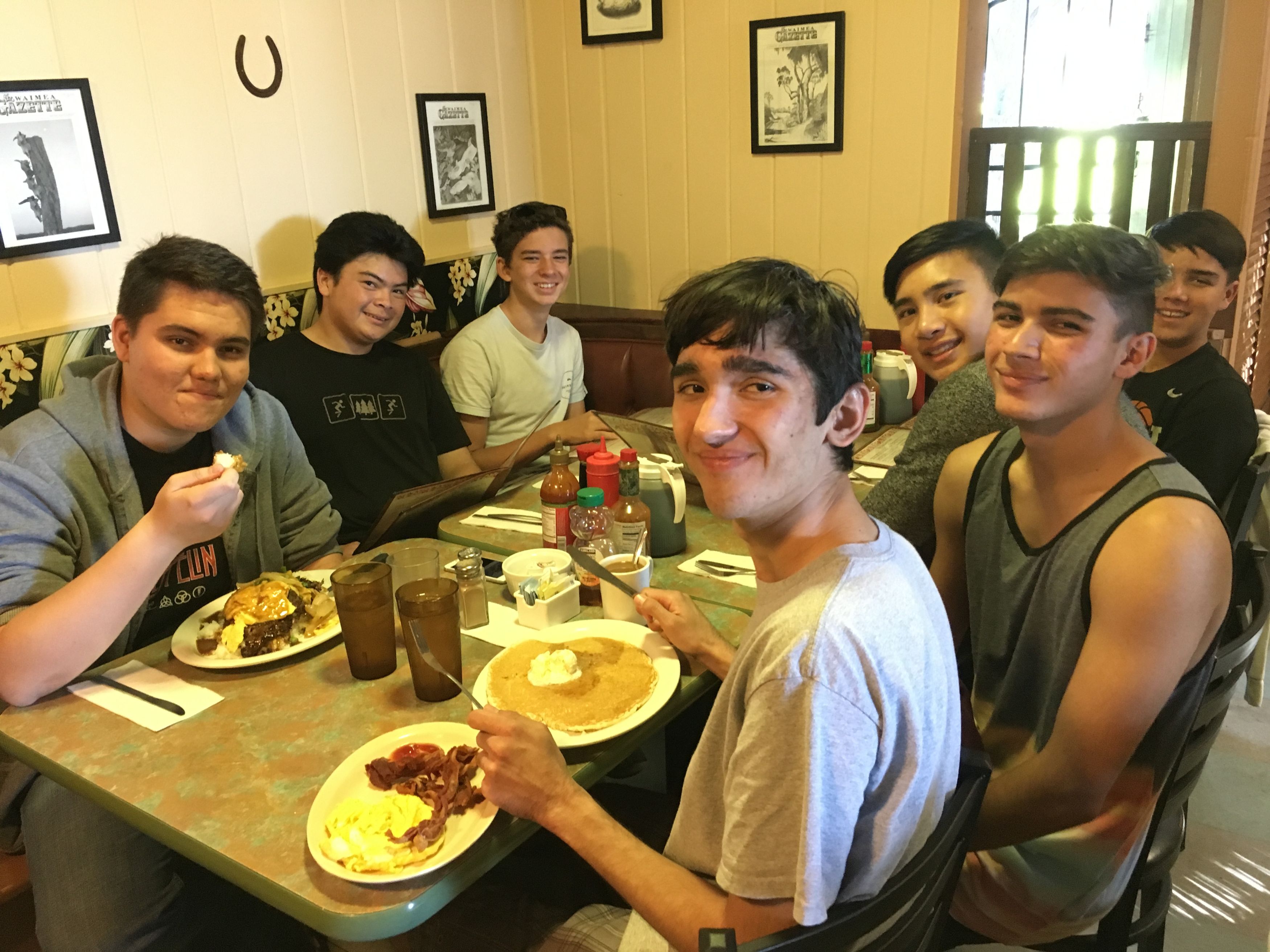
But that description alone makes speech and debate sound like a horribly boring extracurricular, which is simply an incorrect assumption. I have found that the class builds the same kind of teamwork, camaraderie, and friendship akin to those built by sport teams, and it is during these times of unity that much of the fun is present. In fact, many of my favorite memories from throughout high school come from the speech and debate team. Every January, the team flies to the Big Island to compete, and during those three days, everyone shares funny stories from the tournament, laughs together, sometimes cries together, and overall enjoys fellowship with one another. I’ll never forget being tricked by riddles, walking through lava fields, and eating a ton of ice cream as a team, simply out of the love we have for one another.
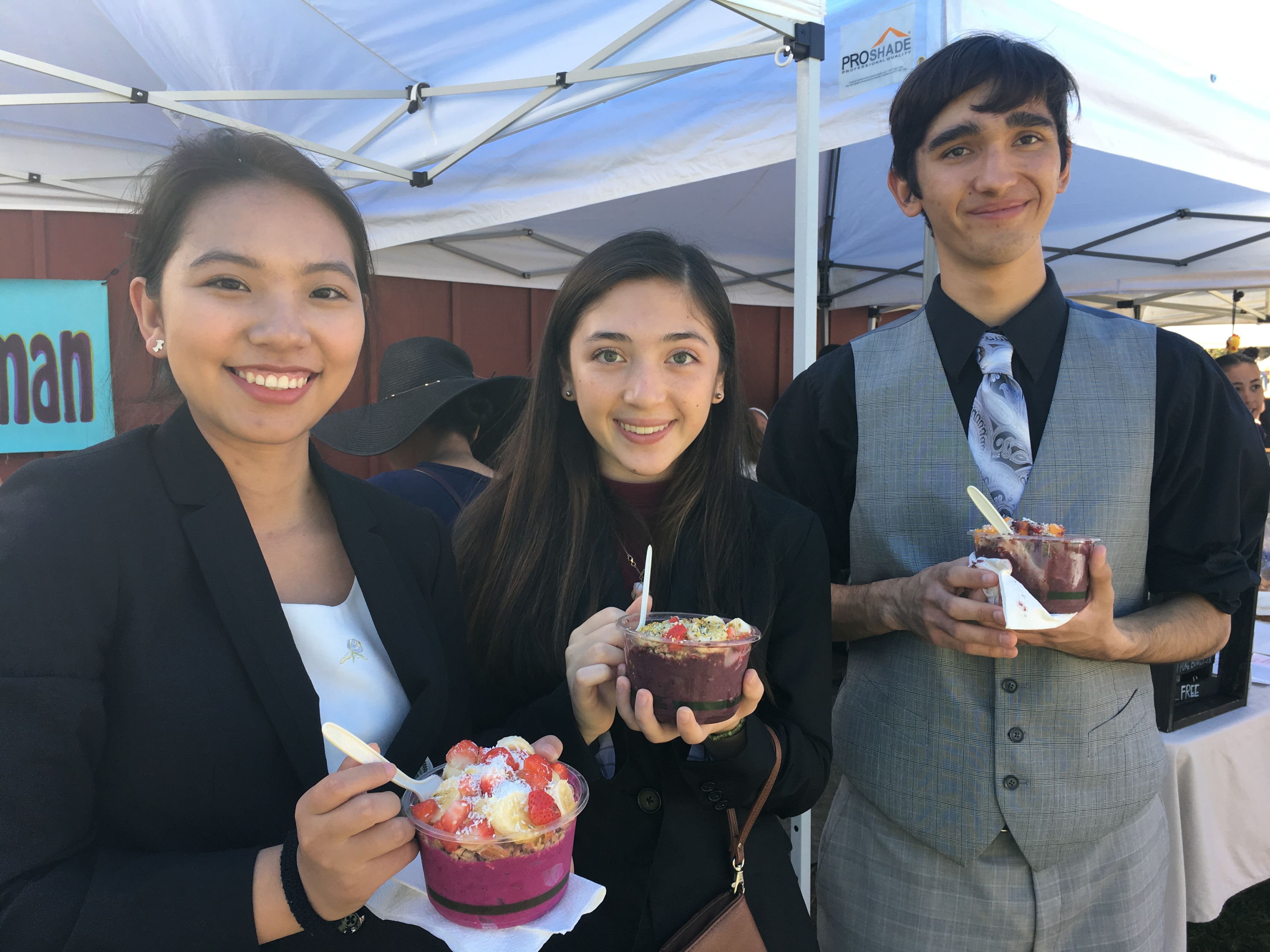
One of the key factors that makes Trinity’s team so wonderful is the fact that the goal of the class is not on victory or beating opponents, but on glorifying God and developing the skills that He has blessed us which. Sometimes we win, and that is truly wonderful, but for every victory we have also felt defeat. But in the midst of all of that, God is with us. Speech itself is a wonderful gift, but He has enabled our little school to have a team that uses speech not as a weapon, but as a means of finding the truth. Speech and debate has been a huge part of my life, and I thank God for the fact that He let me be on this team, and I hope that He will continue to bless people with the wonderful benefits of speech and debate.

Speech and Debate Update: December 2017
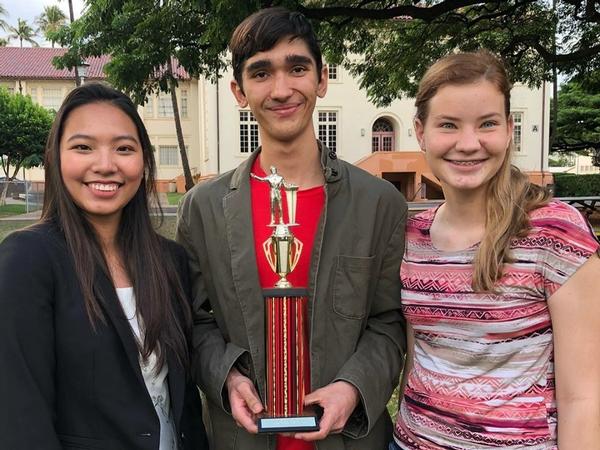
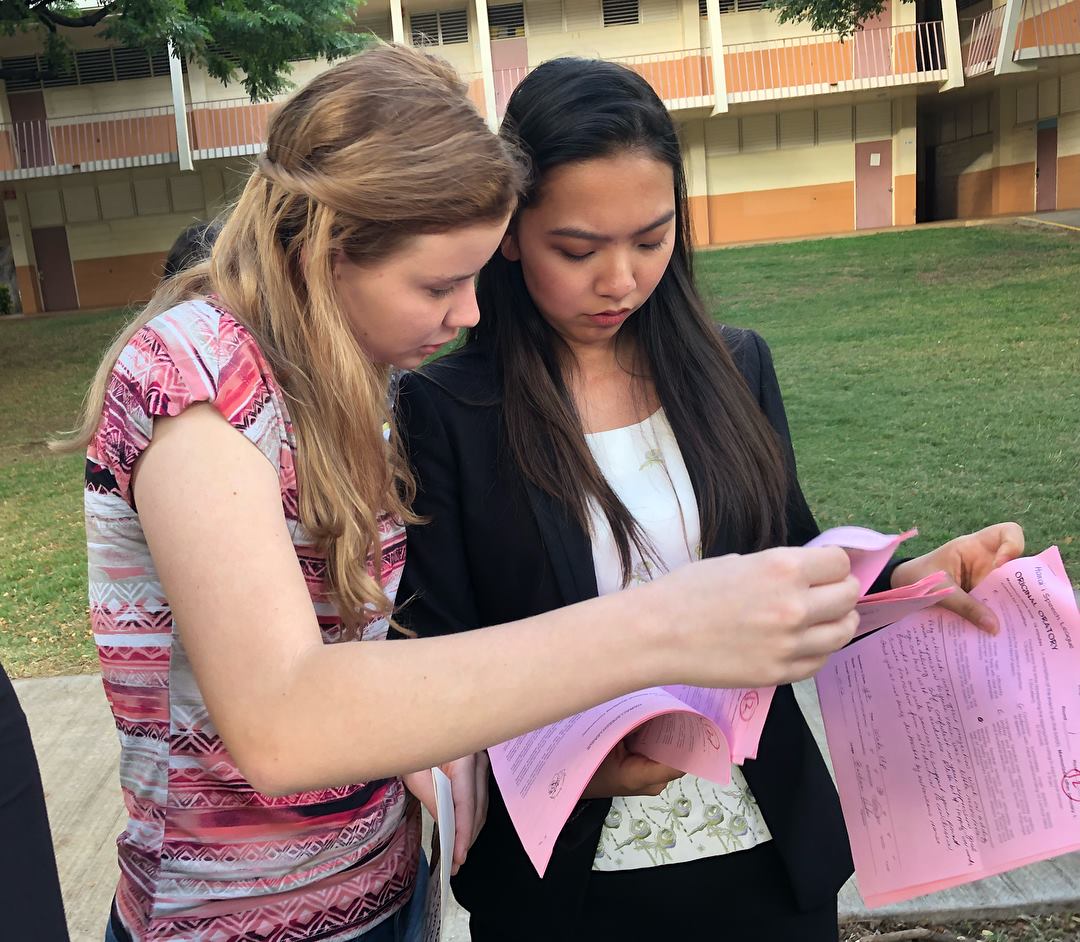 TCS Speech & Debate December Tournament
TCS Speech & Debate December Tournament
Written by Dr. Halcomb, photos by students Lenya & Kaley
On Saturday, December 16th, the TCS Speech & Debate team came out in full force for the tournament hosted by and at McKinley High School. We registered 29 participants and, in addition to representing TCS with an utterly professional look, our students put on display superior speaking and debating skills. The level of decorum that most of our students exhibited, especially the newly minted JVers, was impressive. I was and am proud of this crew!
I sat in on sessions in which all the Honors (i.e. Varsity) debaters participated. We had one pair challenging last year’s state champions and, in my estimation, they did very well. Another team, in terms of winning more ballots, actually defeated the aforementioned champs and, as I watched them in action, I was blessed to see all the hard work they’ve put in thus far earn them victory. Another team I watched simply blew their opponents out of the water by relying on sound logic, argumentation, and evidence. On the one hand, it was difficult to witness because I felt a bit sorry for the other team but, on the other hand, it was affirming to see all the hours they had put in resulting in a “W.”

It was fun, too, to get to know the students outside of the typical school setting. While we were waiting for the ballots to get tallied, we played numerous card games and even managed to squeeze in some video games. We have some great teenagers among us and I’m thrilled to be in a role that allows me to challenge them, encourage them, and, hopefully, shape them in positive ways.
At the end of the day, it was a joy to see TCS receive 14 awards. In Junior Varsity Debate the following pairs all won awards: Jason Aviles & Melynda Bretz, Kaley Nellans & Brandon Lawrence, and Jackson Henry & Micah Litsey. In Varsity Policy Debate, team captain, Kai Glorioso, and his teammate, Lauren Baker, also received an award. In Beginner Public Forum the following pairs took home awards, too: Tanner Tamaye & Lauren Kanoho and Kaila Baker & Grace Klein. In the speech category of Original Oratory, the team captain, Lenya Goda, scored an award, as did Samuel Gilbert.
.jpg)
While there were a number of TCS teams that didn’t earn certificates, many of them still posted points for our school. In other words, even if they didn’t win the majority of ballots last Saturday, any points they did earn went toward our school’s win percentage. Thus, it was truly a team effort that earned us our first-ever Debate trophy! Go Lions! I’m grateful to have been a part of that. The trophy (included in the accompanying photo) reads: “McKinley High School Debate Tournament | December 16, 2017 | Highest Percentage of Wins.”
Come January, as we head into the second half of the season, we’ll keep working hard, sharpening our skills, bettering our attitudes, and focusing our vision. Most importantly, we’ll keep reminding ourselves that in any loss or victory, our aim to be better speakers, presenters, and thinkers has one telos: bringing glory to the God of the Bible, the one in whose image and likeness we were made. That’s a truth we all need to be reminded of during this Advent season. Gloria in excelsis Deo!
Did You Just Call 911?
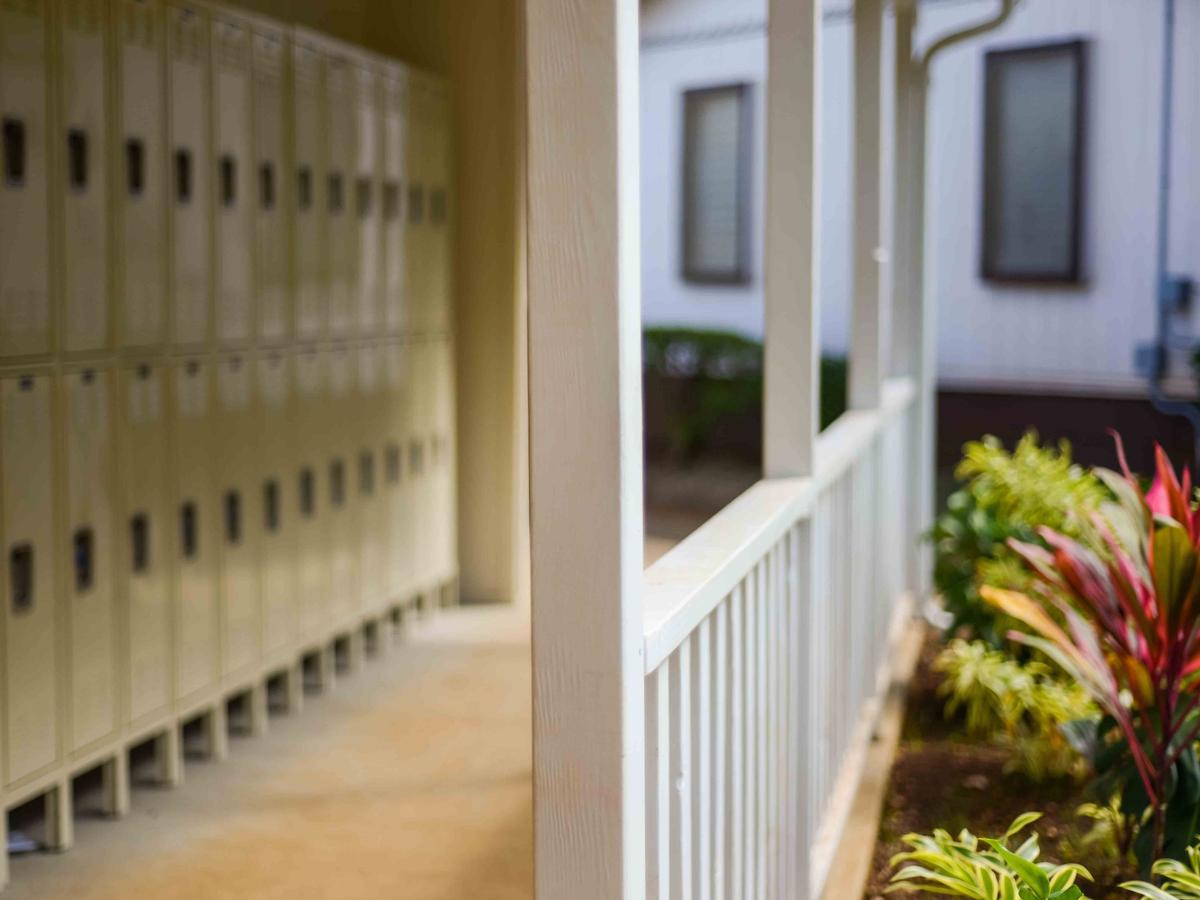
Did You Just Call 9-1-1?
Written by Nancy Keegan
I really enjoy my job. I’m entering my 10th year as the person at the front desk on the Makai Campus. In the beginning, the Makai Campus only housed the 5th-8th grade. We were really small, but each year the campus grew and will continue to grow as classes fill out and eventually double through all grade levels.
There is a pretty big leap from 3rd grade to 4th grade. Not only do you change campuses but you are now going to school with some kids who are 18 years old! In August, the 4th graders are so small but little by little they start to grow up. Before you know it, your little 4th grader will be the big Senior! The students will grow in responsibility and autonomy every year. In August of 4th grade, it might seem unimaginable that in a little over a year, you will say good-bye to your 5th grader as they head off to the Big Island with their class. A huge rite of passage and a critical building block toward high school and eventually adulthood.
When students move to the Makai Campus things are done a little differently. When you’re not feeling well, typically you will be instructed to call your parent to let them know the situation and together you can make a decision if you should stay in school. Some points are non-negotiable (fevers and vomiting), but as you get older, a student and their parent need to weigh out the cost vs. benefits of missing school. To talk to your parent, a student needs to learn phone etiquette and simply how to use a phone. It is not as easy as it sounds, most kids have not used a land line, they’ve grown up with only a cellular phone.
It is just basic skill building. Funny story, if a parent has a non-Hawaii number you need to dial, 9, then 1, then the phone number. One day a student looks up at me and says, “I made a mistake, what should I do?” I look down and see they dialed 9, then 1, then another 1. Yikes! I hang up the phone, hoping my quick reflexes were faster than the 9-1-1 operator. They weren’t! I’m not sure how 9 was chosen as the number to get an outside line. I’m even more surprised I have not had this problem happen more than once.
As we grow these young 4th graders into mature TCS graduates, we will stumble occasionally, we will fall a few times, we will undoubtedly make tough decisions, and learn some hard lessons, but I think this is all pretty normal. I had a wise mom say to me once, “Pray, that your child gets caught early and often.” This is great advice. I want my children to make mistakes and get caught now so we can guide them and help them to make better decisions as they get older. Mistakenly calling 9-1-1 is a simple error, but most likely not one this student will repeat.
Makahiki 2017
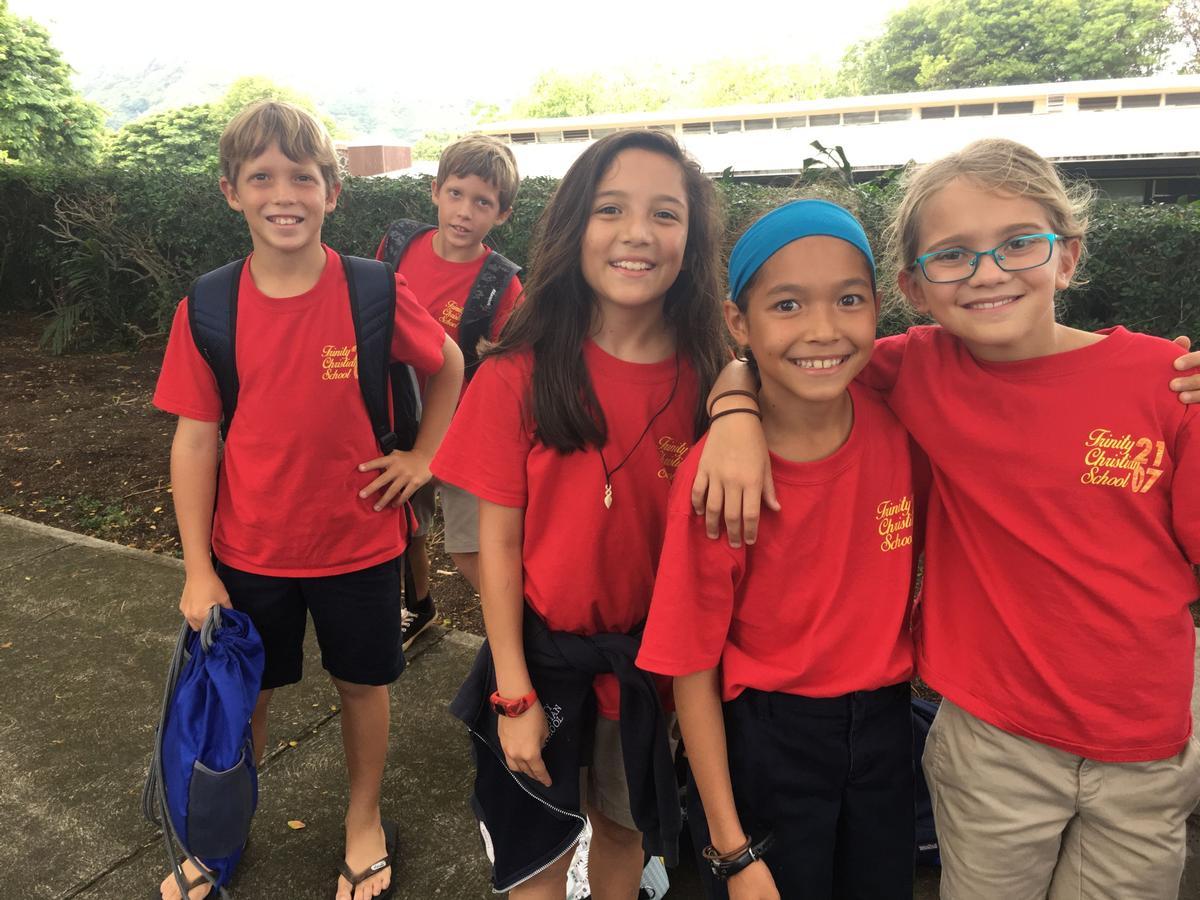
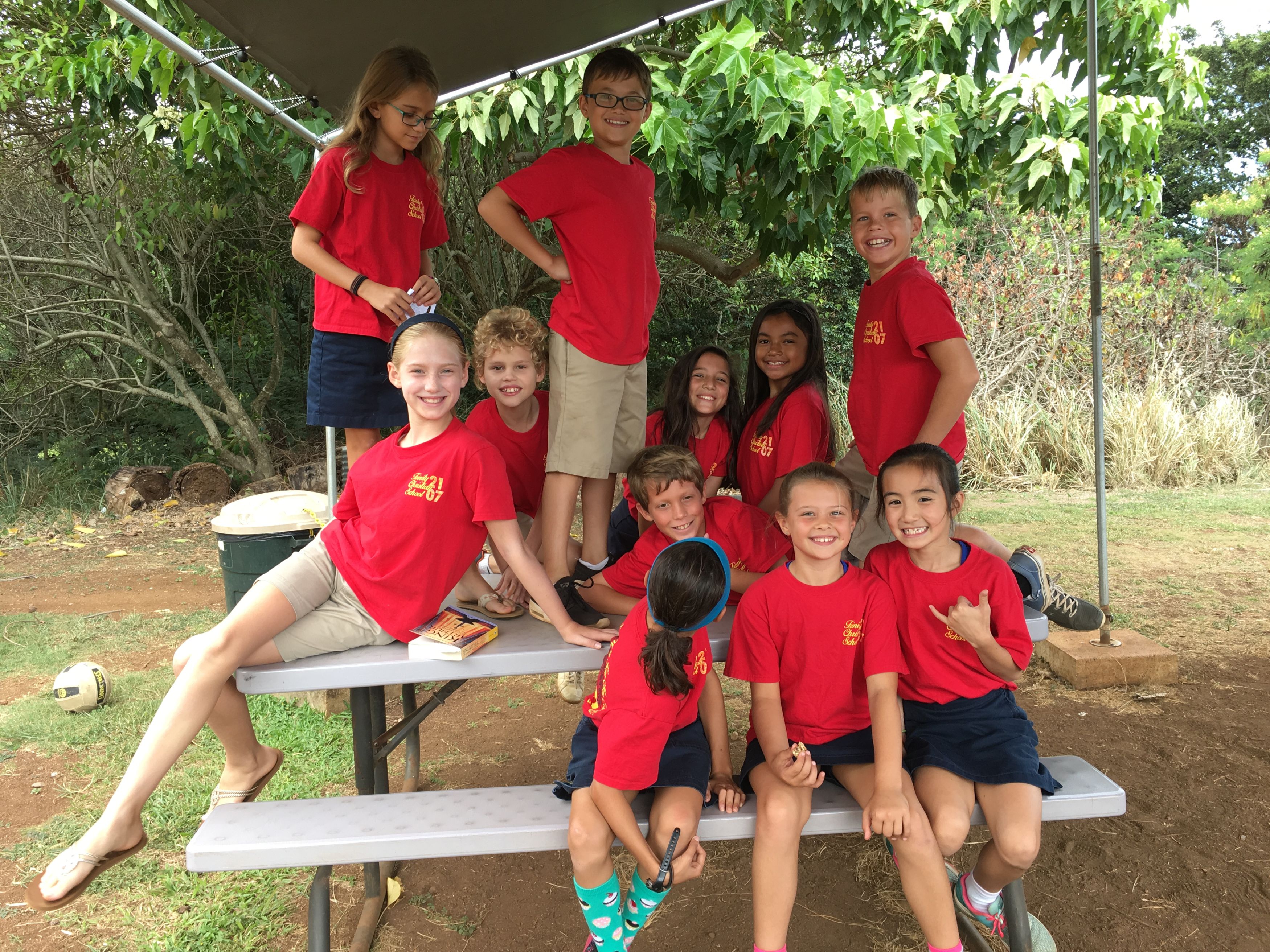
Another Successful Makahiki in the Books!
Written by Nancy Keegan
In its 5th year, the 2017 TCS Makahiki was a great success. From its inception, the goals for the Makahiki were to build community within the school, invite Windward Oahu to see how special our little school is, promote elements of Hawaiian culture, and raise funds for financial assistance and school enhancement efforts (PTF). This parent believed 100% in the mission and vision of TCS and wanted to be able to share that with all of Oahu.
The success of the Makahiki was due in part to the vision and commitment of this parent but more than that, it is because of our TCS ‘ohana. When you are part of a school ‘ohana you are bound together, not by only by blood but by a cooperative effort and care for each other. When we are concerned with the interests of others, we will be blessed abundantly.
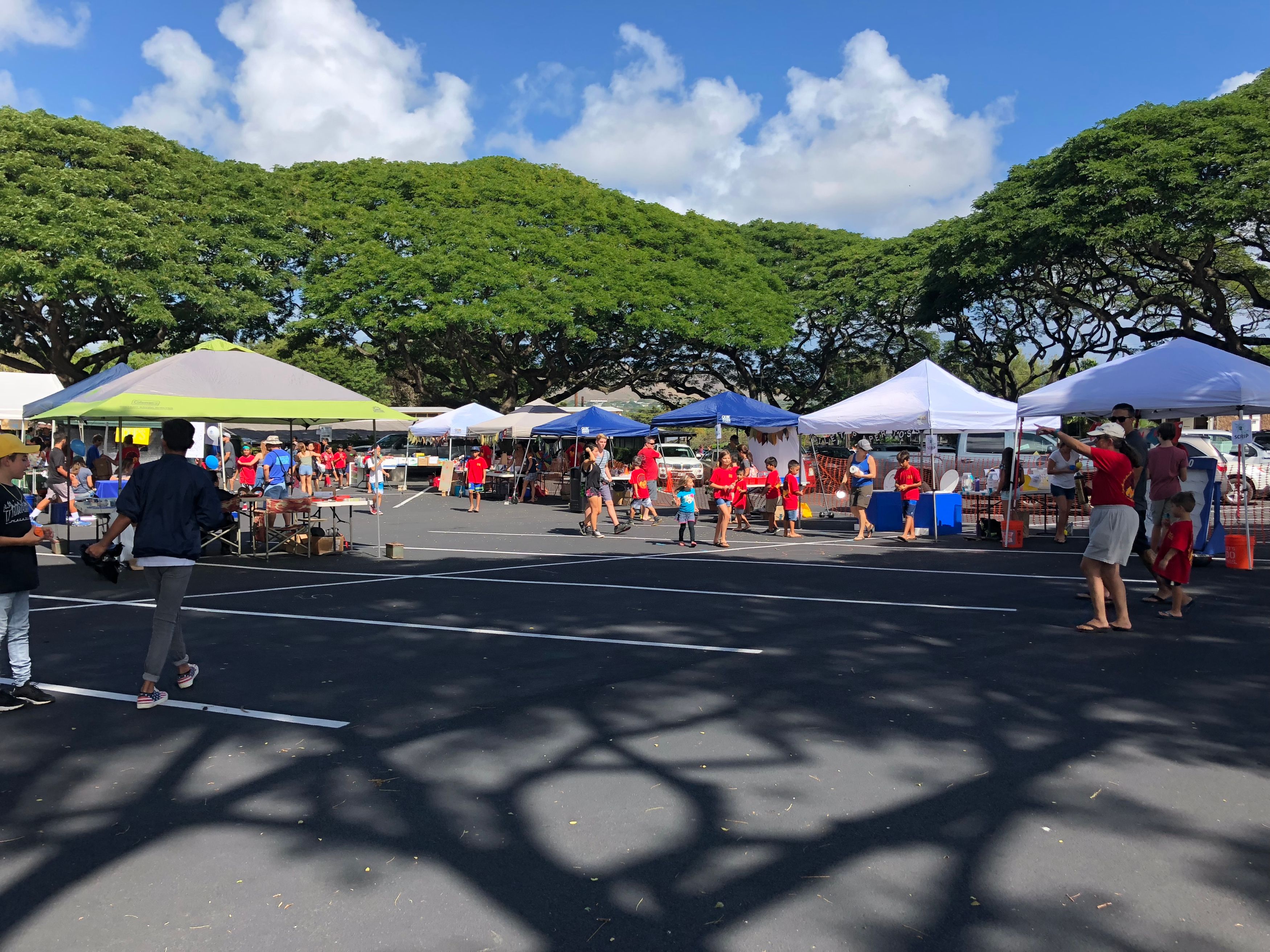
In your relationships with one another, have the same mindset as Christ Jesus. Philippians 2:4-5
Trinity wants to be recognized as a school of excellence. We desire to be unashamedly Christian, excellent in academics, strengthen the character of our students, and partner with parents.
Events like the TCS Makahki strengthen our ‘ohana. The TCS Makahiki, is only possible due to the investment of our school families. Our goal was 100% participation. We didn’t reach 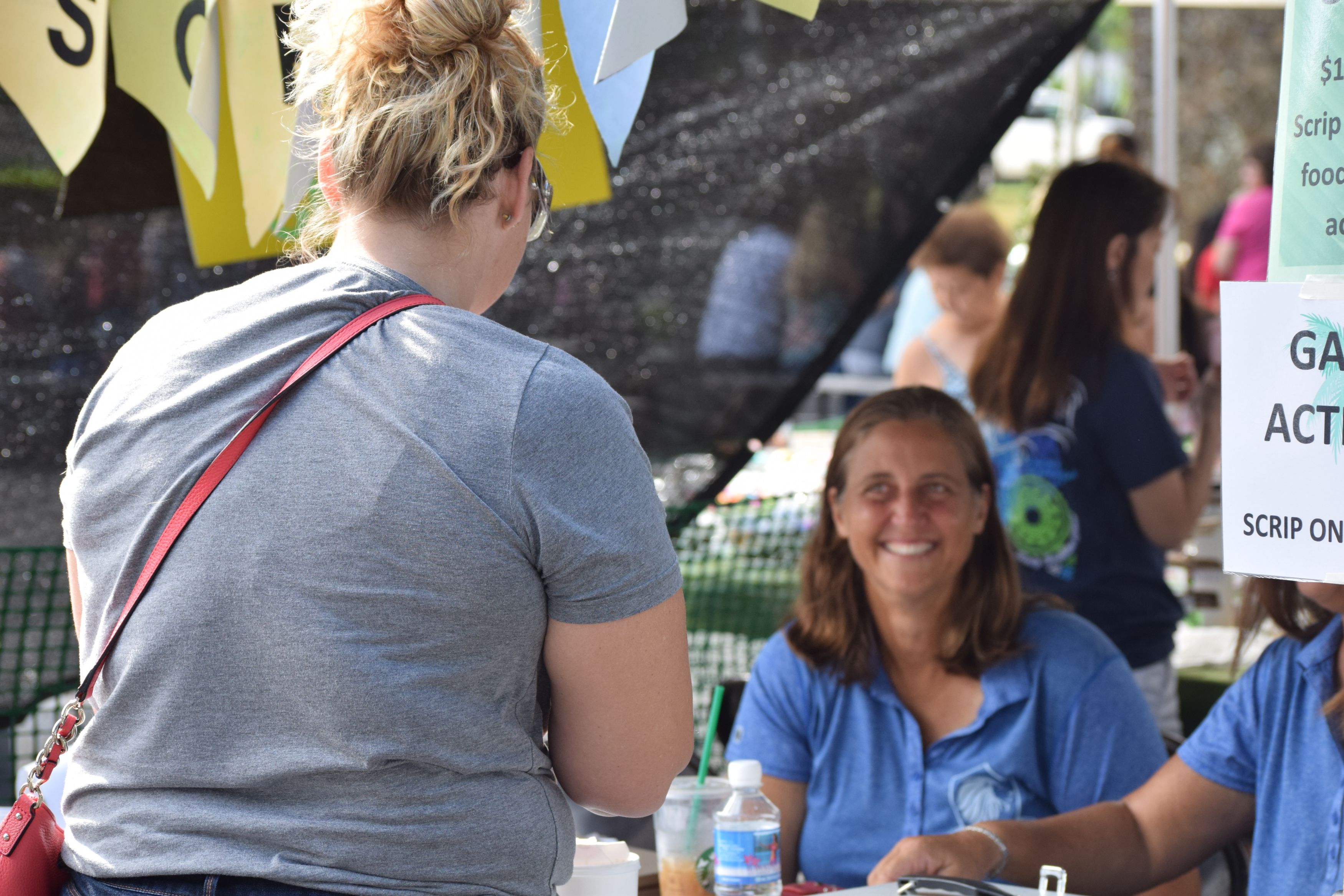 that goal, but in the five years of chairing this event, it grew and flourished. The event got bigger and earned more money, but more importantly, the TCS students, families, and teachers found value in the event and wanted to contribute to its success. Mrs. Greene volunteered to rent the cotton candy machine and get sticky making cotton candy all day. ‘Ohana RC volunteered to set up the fun race course game. Parents began showing up at 6:30 am ready to help. Parents I’d never met emailed wanting to donate items for auction and be part of the entertainment. The event achieved portions of the goal to build the community well before the blessing to begin the Makahiki.
that goal, but in the five years of chairing this event, it grew and flourished. The event got bigger and earned more money, but more importantly, the TCS students, families, and teachers found value in the event and wanted to contribute to its success. Mrs. Greene volunteered to rent the cotton candy machine and get sticky making cotton candy all day. ‘Ohana RC volunteered to set up the fun race course game. Parents began showing up at 6:30 am ready to help. Parents I’d never met emailed wanting to donate items for auction and be part of the entertainment. The event achieved portions of the goal to build the community well before the blessing to begin the Makahiki.
Was the Makahiki A LOT of work? YES! I have five years of Makahiki sweat and grit under my fingernails. Will I remember exactly how much work it was? NO. What are some of my 2017 Makahiki memories? I will remember cutting the kiawe wood and smelling that kalua pig when its pulled from the imu. I will remember listening to Brother Noland sing, make jokes about being stuck in the traffic, and watch Hailey dance a beautiful hula. I will remember the winds calmed, the sun shined, and it was a beautiful day spending time with our Trinity ‘ohana.
Getting up early, working hard, planning for months, all of these experiences build our bonds to one another. The fun times and the memories cement those relationships. We are entering a new season for the TCS Makahiki. As co-chairs (myself and Raynee David) believe it is time to allow others to rise in leadership and reap the benefits of building the community, relationships, and ‘ohana at TCS.
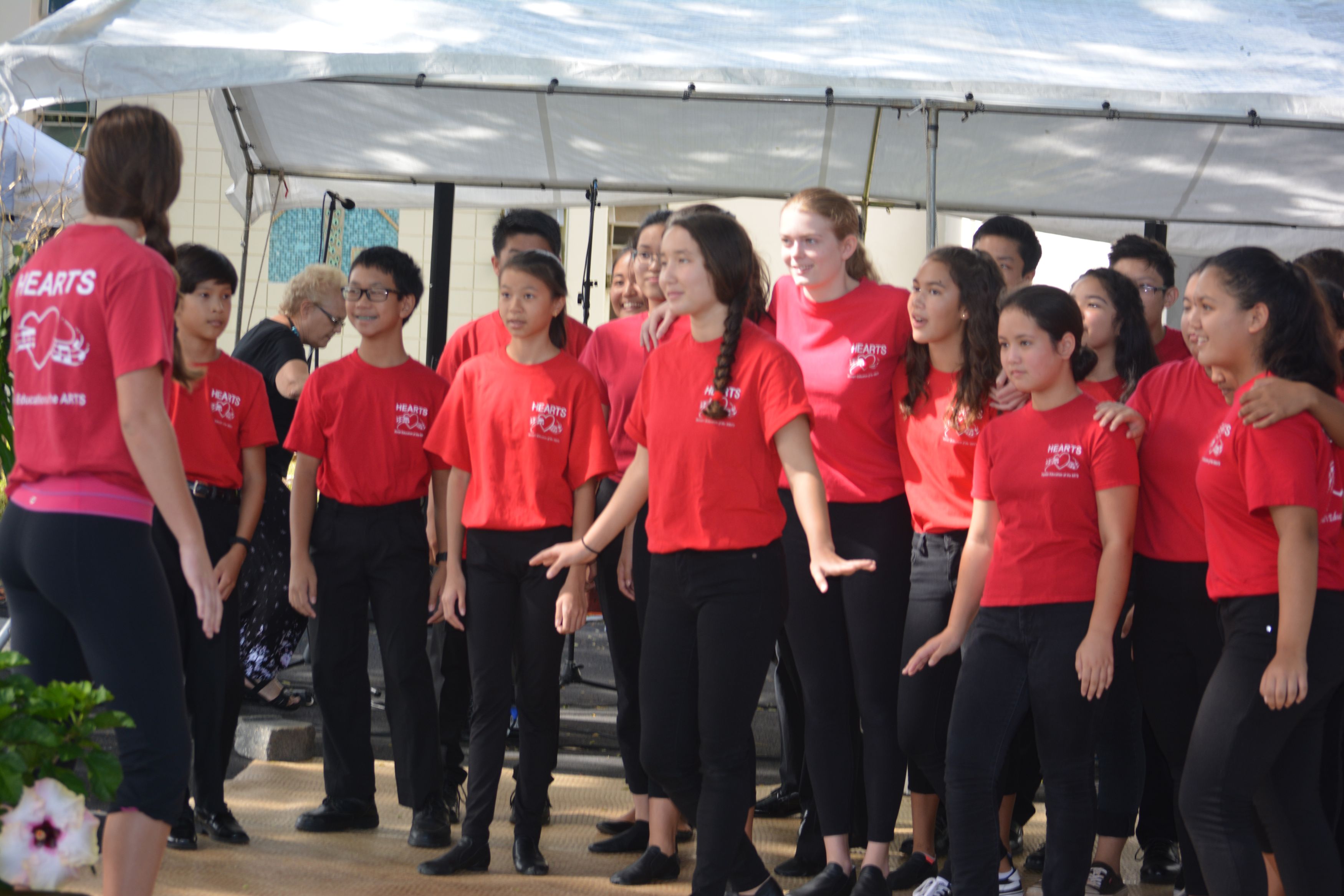
Kupuna Day 2017

Kupuna Day 2017
Written by Linda Kawakami
This past Friday, November 3, was the last of five Kupuna days held at Trinity Christian School. Kupuna, which means grandparents or esteemed elders, were invited to the elementary school to enjoy refreshments, take photos, and observe their grandchild sharing what they learned in class. For the secondary students, Kupuna were treated to a Friday Coram Deo, which the students spend worshipping in song and singing in four part harmony, led by Music teacher Jonathan Fant. We are thankful for the love and support shown to our students' Kupuna by their attendance at these events!
We recorded the secondary school's Kupuna Day performance! You can view it on our Facebook page or on our Youtube Channel.
Recent Posts
Tag Cloud
5th grade academics administration all school all-school alumni athletics big island blog christian christmas class of 2018 classical classical christian classical christian education classical-christian-education classical-education college commencement community coram deo debate discipline donation drama educatio education educational philosophy electives elementary exhibition faculty fine art golf tournament graduates graduation hawaii hawaiian history head of school IB program kaiulani kupuna day leadership makahiki may day missions music office outreach parentsArchives
Looking for more? Read our Grand Tour blog and Athletics blog!

